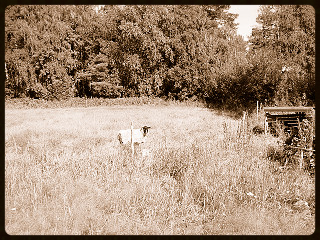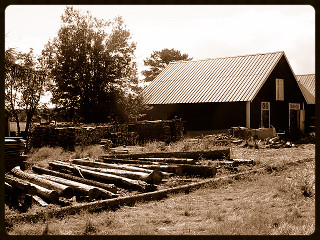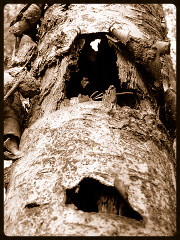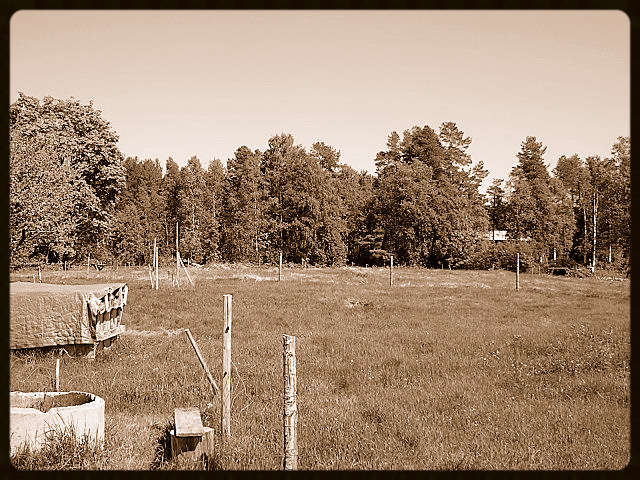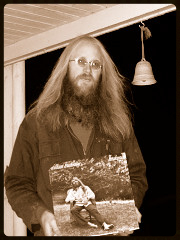
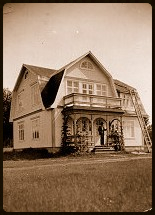
Hawkland Farm Mk II, a k a Utanåkern, circa 1930.
Where the keeper of the keys reveals some of the wax being on frequent rotation at the Hawkland Farm, usually trying to steer clear of things that have seen plenty of praise elsewhere... it might be rare, it might be dirt cheap, always mighty good though. New titles added as time & mood dictate, get in touch if you would like to know when it happens. And don't forget - Hooray For The Farmer! At least as long as he's organic. And micro-scale.
RICK & JEAN SUTTON - Down Home (Bison 101) USA 1976/7
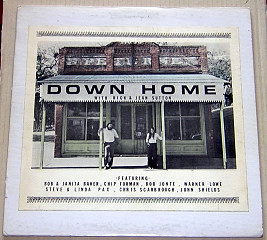
Very obscure folk/countryfolk album, with a sound so simple and sparse that it's likely to pass you right by unless some attention is being paid. Recorded at Sutton Sound Studio (probably the basement of the Suttons' home), the overall feeling here is that of friends and family gathering for a few nights of playing some of their favourite tunes in front of a cracklin' fire while the taperecorder just happened to run, luckily documenting the outcome for posterity.
Line-ups and instrumental settings change from track to track; neither Rick nor Jean is present on all cuts, which vary from Rick solo to full six-man band. As far as I can tell none of the material is original, but the cover selection is tasty, including a couple of Hoyt Axton's - always a good sign if you ask me. His "When The Morning Comes" opens the LP in style, a crisp dawn-like purity shimmers in the laidback groove as it dances gently over the morning dew, with Jean's vocals immediately grabbing hold of your ears when she first appears in the second strophe. If there's one stand-out feature here it is her quavering voice, equal part young girl and mature Earth Mama, and all beautiful; her leads on "Coal Tattoo" and "Whatever Became Of Me" lift these songs into higher spheres. Rick sings leads as well, managing nicely if not as distinctively as Jean, with a warm honest voice suiting this type of material very well (his solo take on "Diamond Joe" is one of the LP's highlights), and the same can be said for a couple of other guys that get to sing a song each. In fact nothing on here is out of place - the musical and vocal bits mesh perfectly all the time and any other title but "Down Home" would just not seem appropriate.
One could lament the lack of original material, I for one usually don't enjoy covers very much, but the Suttons' interpretations are really solid, adding and distracting on its way, coming out with something wholly - or damn near - their own. Backwoods americana with dirt under its fingernails, the backyard dry and dusty with an endless view of the plains. Oh, label name is Bison - how could it not be? (2008)
(Note: Jean Sutton got in touch with me after having seen the review above & revealed some interesting tidbits about the release. For a start, it was a 100 copies-only pressing (even fewer of which were distributed), basically done for the purpose of Rick learning the trade of doing a record from scratch - i e from recording it in his then-new studio to actual manufacturing. My 'friends and family' comment above was spot-on it seems, as one of the participants here was Jane's father! Still based in California, Rick & Jean continue to play, most notably with the Knucklehead Jug Band, which put out a great CD ("Incognito", self-released) some years ago. And last but not least, when Jean was going to check some albums she was about to send me, she had to remove a record from their turntable, one which seemed to have been on there for ages... of course it was Norman Greenbaum's "Petaluma"!)
NORMAN GREENBAUM - Petaluma (Warner MS 2084) USA 1972
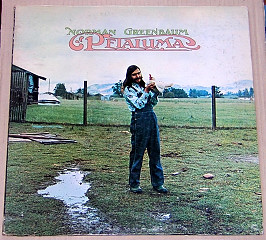
Yeah, Norman "Spirit In The Sky" Greenbaum - not much one can do to get around that fact. A nice-enough tune, sure, on a pretty good LP too, but if you wanna find out how exceptionally good Norman Greenbaum could really be, this is the album you have to look out for. Wasting no time, he gets right down to it in the first chorus:
"Greenbaum's dairy, that's our name
Norman, Vicki, Jethro and Sara Jane
Oh me, oh my
Such a long way from Spirit in the sky"
("Grade A Barn")
Because, when everybody and their mother had at least one song dealing with the back-to-the-land movement then currently in vogue, Norman and his family took the royalties from "Spirit In The Sky" and invested them in a farm, where they built up a small dairy business (for "the folks who wanna be healthy, who wanna live right"). No weekend hippie fare here, you see, but rather put on your coveralls and head out to the fields; this Greenbaum did to the extent that he dropped out of the music scene for a couple of years in the early 70s, and when he did return it was with this depiction of a life in the backwoods.
Track titles like "Grade A Barn", "Dairy Queen", "Country Lad", "The Day The Well Went Dry" give you a good idea of what "Petaluma" is all about. Very gentle and mellow - though not in the southern CA lame-ass sense of the words - with finely carved tunes and a nearly all-acoustic setting, including several instruments often associated with bluegrass or old-time music, like washtub bass, clarinet, accordion, jug etc, handled very ably by Ry Cooder, Richie Olsen, Russell Dashiell, Norman Mayell, Bill Douglas a o. Despite this the album sold no more than 5,000 copies, according to a 1975 interview with Norman in the UK mag ZigZag. And somehow this beauty continues to slip through the cracks; I've long considered myself something of a connoisseur when it comes to rural sounds, but nevertheless I didn't pick this one up until 2005. It has since then, however, seen constant playing. Several of my friends with similar tastes in music report that they too hadn't bothered with it for years. Shame on all of us!
Anyway, being a stone solid LP there's little need to single out specific songs; they're all great and they grow on you considerably after repeated plays until they feel like old friends hanging around after a day's work repairing the roof of the barn. An extra mention must be made of the excellent packaging though: a thick gatefold cover with a booklet stapled in the middle, loaded with great photos, lyrics, a comic strip, and short comments by Norman. Try this one: "We were raising a pig on goat milk and grain. Her name was Sadie. She had a room of her own in the barn with a yard, but she was lonely there, so she found a way out and would hang around with the goats. That was kind of neat, so I let her do it. Then she figured out a way to get from the goat yard to the sheep yard, so she could alternate her hanging around. Sadie was great." She looks happy and beautiful in the photo accompanying the words, and no wonder - Shady Grove, where all the pigs have tails, is the place to be, no matter if you call your take on it the Petaluma outbacks, Olema, Black Bear Ranch, or the Hawkland Farm. (2008)
JOHN PALMER - Shorelines (Celebration CEL 1868) Canada 1971
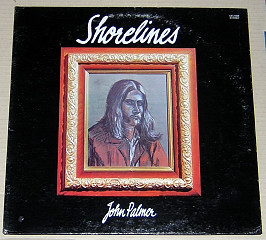
Having seen this Canadian LP in lists a few times I had made a mental note of checking it out, should the opportunity arise, even though I was a bit weary of descriptions along the lines of "Skip Spence-like downer psych" - those seldom turn out to be much more than dealer fantasies, with little or no resemblance to reality. Anyway, I eventually traded for a copy and let's just say I wasn't disappointed; while I don't think it's terribly reminiscent of "Oar" I can understand the comparison, and as for "downer" you can't get much more of that kind of headtrip than what's on offer here.
Opening with "Clouds", complete with backwards bits, heavy keys & drums, fuzz, and a voice that just sucks you right in, Palmer chills your mind and body with a truly tormented lament over a life no longer what it used to be:
"Well I guess it's over
I'm not dreaming
It's just over
Somewhere a voice is screaming
In the dead of night
It sounds like mine"
The nightmare trip through a shattered psyche never stops for a break throughout the rest of the album either. The musical setting may vary from the seriously heavy monster fuzz/pounding drums/howling vocals of "Free Me" to 12-string raga-esque bits, complete with chanting by pals from the local commune, but they're all important parts of the puzzle and the whole that eventually comes out of it is one of the most amazing personal musical documents I've ever heard.
Most of the keys & strings are handled by John himself, with drums usually added later on, which may explain the somewhat rudimentary percussion style. Yet very apt they are, like if the drummer had tuned into John's demons and wanted to help him get rid of them by pounding the skins as heavily as possible. The songs are usually folkbased, though the end product is much more than a folk LP; the arrangements are rich and purposeful with lots of nice keyboards, great electric and acoustic guitars, effects, some almost proggy bits... and those vocals. John Palmer is certainly not your average coffee-house singer, I tell you.
"Better Later Than Never" is one of the acoustic tracks, with droning guitars, echoing hand percussion and amazing background vocals, like if a few angels had dropped by the studio and decided to give the underground music biz a shot. So beautiful. The last track, "Salvation's Den", might by comparison to what went down before offer some refuge, but it's still a bleak and painful road ahead:
"I have looked over
The long and winding ways toward salvation
And I have been over
A final line that some would call damnation
Some have called it godless - when I'm lost in it
But I've paid them the loss in the process"
I emailed a bit with John last year and he confirmed that his life wasn't easy at the time of "Shorelines". Love, confusion, and drugs all played their part, but luckily things improved later on and he now seemed to be doing fine. A reissue is in the works and hopefully that will help to get this masterpiece the recognition and respect it's long been devoid of. Perhaps some of the recording anecdotes John told me will be presented along with this new edition - background details are pretty interesting in this case. (2008)
(Note: this has since been reissued in a single sleeve by the Void label. I haven't seen this, so I don't know if any of the stories John told me were included with it. Those included the budding Toronto communal group The Hall that chanted with him on one of the songs, the tears in his eyes when the gatefold shot was taken, the quest for the ideal guitar sound, in rather unorthodox manners etc etc... I hope they're in there though. If not, perhaps the time will eventually come for this magnificent LP to be reissued once again, in a gatefold cover & complete with background details & enough power behind it to actually reach out to more people.)
STEVE ELLIOT - Steve Elliot (no label; SE 1000) USA 1969
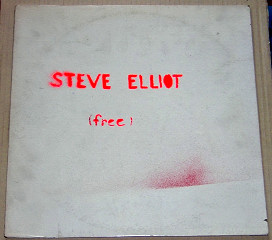
NYC private pressing, known in the sense that it's listed in many of the books dealing with this type of LPs, though rather unknown judging by how few there seem to be who've actually heard it. To my ears this could have a pretty wide appeal these days - if Gary Higgins can sell a few thousand copies this should at least move some 500 units. Sure, this is rarer and not as accessible as "Red Hash", with longer tracks lacking in the "hooks" department, but I for one play Elliott far more often than Higgins (whom I do like a great deal). Something with the quirky, edgy quality of this demo LP keeps drawing me back to it over and over again; the raw unpolished vocals spin riddles in my brain and I still feel I haven't really grasped it completely, despite having listened to it countless times.
The formula is rather simple: really good acoustic guitar and worldweary vocals by Elliot, session musicians helping out on bass, piano, organ, sax, flute. No slick vibes, but an organic, inventive, slightly jazzy style (especially obvious on the long tracks), where the musicians can do their own thing, perhaps not "freaking freely" as they say elsewhere, but they're certainly left with quite a lot of freedom for being a backing crew. Of course, that could just be the result of little time learning the songs; in any event it works to its advantage.
My personal favourite would be "Magic", which gets a good folk psych thing going with flute and organ, and lyrics open for interpretation ("There's magic in the madness" goes the first line), and the "could've been an ESP-release"-thought in my head is never stronger than here. Yeah, the New York origin does show, but I also get a UK feel from much of this, even though I can't think of any immediate comparisons.
Oh, lyrics must be noted too - Elliot has a nice way with words, and presents a heady mixture of observations, hallucinations & poetic grace, leaving us with the question "Is there no peace without the horrors that must come?". Lifted from a song called "Death Rush", those words could mean lots. More of us should spend some time figuring out exactly what is hiding in these grooves. (2008)
(Note: this album is sometimes referred to as "Free")
THE FARM BAND - The Farm Band (Mantra 777) USA 1972
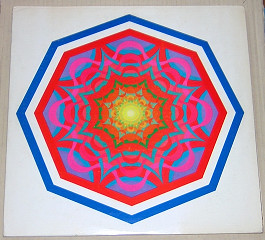
Kind of a given here, don't you think? The Farm Band (also operating as Stephen & The Farm Band and the Tennessee Farm Band) was the houseband at The Farm, flagship of all hippie communes. I strongly recommend anyone with an interest in the rural revolution to check out this amazing place more; the book "Voices From The Farm" (Rupert Fike, ed.) is a good start.
This massive 2LP set was the Farm Band's first release and also by some miles their finest moment (later LPs are pretty good too, though, and I wouldn't want to let go of any of them). A nine-piece outfit, the standard rock setting is augmented by flute, electric fiddle, and French horn(!); mixed vocals and long, jam-oriented material give this an undeniable late-stage West Coast feel (not much of a surprise, really, as most of the Farm residents originated from San Francisco). The mood is one of joy and spontaneity, where you easily can imagine a few hundred longhaired freaks out in the fields groovin' all night long into the morning sun, as the last jam slowly fades away.
This spontaneity also results in performances that are perhaps a tad "loose", shall we say, or even sloppy, with vocal harmonies going all over the place. Songwriting never was the Farm Band's forte either. What they do succeed in is creating a sort of tribal Earth Rock, where the leadguitar of Walter Rabideau cuts through time and space leading the band further and further away into holy man jam land; the rhythmguitarist steps on his wah-wah, the violinist comes sweeping in from the cornfield ready to push things into even higher grounds, and eventually it's a wall of sound-effect that soars high above the watertower, leaving Summertown, TN, as nothing but a tiny dot on the map that stretches out far below. Get the picture? When the jams here really gel it's an amazing power at work, a psychedelic testimony with a groove that appears to be endless.
This being a very communal effort it feels contradictory to single out any specific player, but I can't let the opportunity pass to praise Walter Rabideau's guitarplaying. One of rock's unsung guitarheroes, his solos have a rich tone, an amazing flow & if you like me have an inclination towards air guitar-moves, Walter's all you need for a night of good fun. Ok, the last statement may not be serving his reputation much good, but he really is fantastic, and an Acid Rock Legend in this household. On this album he also benefits from having some hot rhythmguitar to play against, by someone named Joseph (last name unknown to me), who wasn't on any of the subsequent LPs.
In all, this is a document of a time where possibilities seemed endless (the heading on the Farm Band's touring bus read "Out To Save The World"), the music being only a fracture of what it was all about. The Farm is still there though, with some 300 members, but the Farm Band called it quits in the late 70s or so. Like any other Farm product the packaging here is awesome; a thick gatefold cover, huge poster and printed inners. A piece of art, a statement and an essential piece of underground head sounds. (2008)
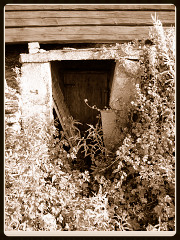
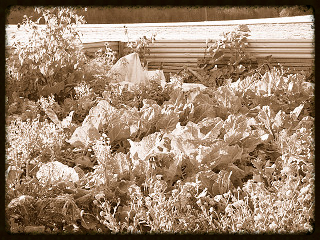
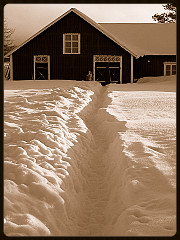
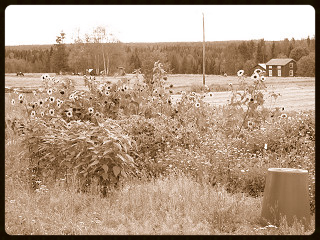
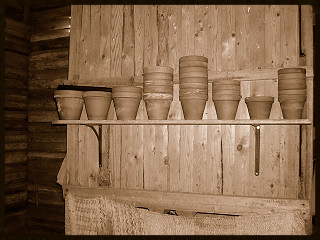
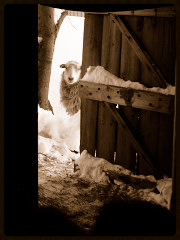
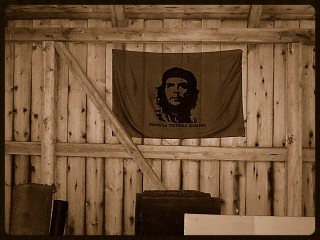
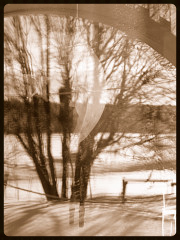
HAPPY AND ARTIE TRAUM - Happy And Artie Traum (Capitol ST-586) USA 1970
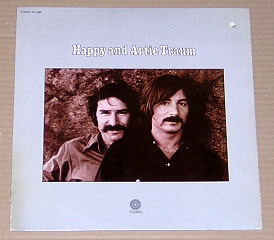
Well-known staples of the 60s & 70s US folk scene, the Traum Bros can be found on lots of LPs together or individually, but their own albums are, decades later, somewhat neglected, especially this magnificent slice of gifted songcraft.
Released to great reviews in 1970, "Happy And Artie Traum" was their debut-LP as a duo but newcomers they weren't, and the album certainly shows no sign of being a first, stumbling effort; instead it's a remarkably well-realized collection of words & tunes that stand with one feet in the mystical, mythical America of previous decades and centuries, and the other in the back-to-the-land subculture of its own time & place. It's as rustic as a log cabin in the mountains and as authentic as the old mountain man living there; the dry, sparse production lets not a single note sound out of place (ok, I could do without the honking sax in "State Line"), just like a mountain man would not speak if he didn't have something important to share. The instrumental and vocal delivery is rather stunning but completely without flash, and in that sense perhaps recalling The Band a bit, although this is far looser and without the unfortunate scholarly fake hicks-vibe that to my ears plague some of the Band's material. Actually, one of the two non-original songs here is Robertson/Danko's "Going Down To See Bessie" (a k a "Bessie Smith"), so the influence was there (the Traums apparently learned this from the writers, as they were friends living nearby; the Dylan/Band-version didn't see a release until the 1975 Basement Tapes), but just like with the Goose Creek Symphony, another Capitol outfit who'd been listening more than once to Robertson & crew, the brothers come out way on top of anything the Band could ever have dreamed of.
The second cover is "Uncle Jedd Says", written by Billy Batson (session-guy and member of Holy Moses!! amongst other things), also recorded by Perth County Conspiracy, and a fit choice both musically and lyrically. Noteworthy too, perhaps, is that the "Hungry Dogs Of New Mexico" had previously been recorded by Bear (featuring Artie; an earlier incarnation included Happy as well and released a 1966 Columbia single that I need - can you help?) on their excellent sole LP, "Greetings, Children Of Paradise" (Verve, 1969).
Personal picks for highlights here, should I be forced to, include "Farmer's Almanac" (with genius drums by Jerry Carrigan; a sidenote, that), the almost psychedelic tabla-driven "Brave Wolf", the tale of rural hardship that is "Trials Of Jonathan", and the mesmerizingly beautiful and mysterious banjo/fiddle/guitar-closer "Golden Bird".
Happy says in his liners that "after living in the mountains for a few years one begins to understand the stuff that ballads and lore are made of. The Catskills are filled with legends, its woods steeped in ancient mystery". A spin of this album gives you ample proof that he wasn't just saying so - these tunes speak of a life far off the main road, where the ancient and the current, reality and dreams meld together in the shadow of the mountain, and had Happy and Artie not learned this first-hand they simply couldn't have written these songs.
Artie Traum sadly passed away on July, 20, 2008; his legacy is one of importance and this is the perfect place to start if you're yet uninitiated. (2009)
BILL MADISON - Sunday Mornin' Hayride (Saloon Records sr-0001) USA 1973
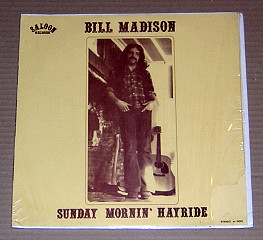
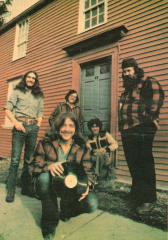
1st Hayride release photo, from North Shore 73, March 24th 1973
A little-known gem out of New Hampshire, this terrific acid cowboy in the wild west outlaw private pressing simply reeks of a rural America that probably doesn't exist anymore, and I imagine it wasn't much left of it back in the early 70s either, but Bill Madison delivers such a solid songbook that you'll be excused if you find yourself believing you've been taken on a ride in a time machine - only the captain here's a bonafide head & wouldn't drop you off in the 19th century without first stopping at the local freak club for a pocketful of smoke. How about this to get you in the mood:
"Well I got an old house upon a hill
Where they got some woodsmoke
And dungaree silk
And all the time the frontdoor rattled
To the beying of the cattle down... beddin' down
I got a palamino, pinto clip-clop heels
A wagon wheel too splintery to feel
And just as Custer fired his last shot
With war-hoop cries and whiskey casks
I got drunk"
("Old House")
A cool, lazy vibe permeates the entire LP, rootsy countryfolk with a slight jazz influence at times, which may sound like it'd be out of place but in fact just broadens the palette with a small-town smoky nightclub feel. "Rather Be The Devil" actually goes pretty far in this direction, but yet fits perfectly in the overall atmosphere which is an equal mix of the gentle and dreamy ("Penance"), good-timey ("Sunshine Cowboy"), and haunting ("Buffalo Skinners"). It's hard to say whether the very consistent feeling of the album is carefully planned or just the only way it could've been, and it really doesn't matter much. What does matter is that it's really, really good & that it works just as well in end of the year December midnight darkness as it does in the sunshine of an early July morning; "Sunday Mornin' Hayride" has that hard to define aura that some music carries with it, which makes you feel like you're allowed a glimpse into a secret room behind the bookshelf, where a band is forever captured in playing mode - all mystical musical magical hour all day & night long. As you stand there watching in silence, the band gets going with "Sunshine Cowboy", where Bill hips you to the basics:
"Well when he walked out, stalked out and blew his lid
He barely knew all that he hid
With Lady Godiva naked on some horse
She proclaims in jest... the world seems rather coarse
But the sunshine cowboy, he never gets mad
You come on too heavy, and he extends his hand
Six-shooter saloon you got no backs down to the door
Black-Jack and whiskey, he knows the score
Setting up the bar with cokes and ginger ale
That stick-eyed gambler, he knows he cannot fail"
... and just as you think you'd better close the door before someone sees you, the light dims & a cold wind chills you to the bone & you won't be able to shake that feeling for days... such is the spell of the "Buffalo Skinners". Seance-like and mysterious in its quiet magnificence this is the track that will call you back over and over, and soon you realize that all the other songs have crept under your skin as well. Or at least that was the way it worked for me - just like Red and Mescalito, Bill robbed my head in no time.
Another case of great packaging too, neat paste-on cover with a huge four-page insert with lyrics & photos that go hand in hand with the music itself. I'm sure both Zeb Macahan and Ken Kesey would agree wholeheartedly. (2009)
(Note: this has since been released on CD by the Bella Terra label, a subdivision of Riverman. A rather nice little package, complete with a replica of the insert, as well as three fine bonus tracks. There's also an additional insert with some period photos & a reprint of my review above.)
ROY BROWN JOSE GONZALEZ MIGUEL CUBANO - Distancias (Disco Libre DL-018) Puerto Rico 1977
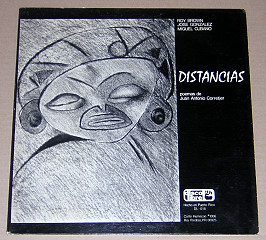
While we're not very far into the Farm Archives yet, you might still have spotted a certain similarity between the titles hitherto chosen for inclusion - they're American or Canadian and distinctly Western in their expression. By comparison this is certainly one odd duck out then; a Puerto Rican trio setting music to poems by Juan Antonio Corretjer, without a sign of "rock" influences to be seen anywhere.
This came to me via one of my foremost trading partners. I didn't know of it at the time, but Dave told me I'd love it & after years of shipping LPs back and forth he knows my tastes rather well, so this comment raised my expectations considerably. When I saw the artwork inside the gatefold cover I was even more intrigued, as the cryptical b/w pseudo-ethnical sketches found there were highly reminiscent of certain native art created under the influence of peyote or similar psychoactive substances. So, I slap it on and am ready to be blown away... only to find that I think it sucks. This first spin left me completely cold, with only the wild percussion on the first track making any sort of impression.
Somehow something caused me return to it soon after though, and this second listen (which in turn led to many more, appreciation growing with each and everyone of them) made me take notice of some very sublime studio-trickery going on in the background; faint echo and reverb are used all over the LP to enhance various parts, not least vocal ones, and the arrangements are also very clever - the tracks lean toward being on the long-ish side and use the time to go through several different moods and settings, incorporating spoken bits and various percussion instruments of a less rhythmic character to keep the path anything but straight. The real foundation is however comprised of acoustic guitars and more properly rhythm-keeping percussion, all played with a very light, "island-sounding" touch and while this will likely give you an idea bearing little resemblance to the actual sounds, one musical comparison that pops up in my head both now and then when listening to this is These Trails. The vocals are an altogether different story though.
Opening track "Oubao-Moin" is one of the highlights, with a haunting melody, amazing percussion and an intensity towards the end that is very moving; all the previous parts coming together in one majestic whole. The last word sung, "alabanza", is repeated over and over, and as my Spanish is non-existant I looked this up and it seems to have something to do with praise - very apt if so. "El Hijo" is another major highlight, with delicate guitar/percussion tapestries that just seem to go on infinitely at their own slow pace, but after some minutes the whole thing becomes very fragmented and diffuse before it picks itself up again, only now with the addition of a distant echo-laden, wordless vocal and soon after another vocal enters, but spoken this time. Very psychedelic in a very subtle way!
I actually find the entire first side to be one gentle trip through watercolour landscapes, where I'm leaving myself behind for a mesmerizing Sunday morning world of clouds and faded sunlight, with a hint of darkness creeping in from way down under. Side two maintains this feeling only in parts (notably "Dia Antes" and its highly surprising ending where a mellotron sweeps in and the vocals disappear in a choral/reverb-effect that's pretty mindblowing), mainly due to the fact that much of this is taken up by the 14 minutes long titletrack, which unfortunately loses most of the creativity found on the first side, and is something of a disappointment in comparison. Still, it's nice for what it is but also very revealing of the fact that the qualities in this LP are in the mix of the songs, percussion & general arrangements, and studio refinement, and when the song is left more or less by itself it doesn't move me in the same way at all.
Anyway, more than half of this album is truly excellent & one to pick up at those special occasions when the groove you're looking for lays in the gentle breeze just out of reach in the windsung sounds of exotic trees. Blowing, blowing away. (2009)
HILSS & LABLANC - A Time Lost (no label; AR 3939) USA 1974
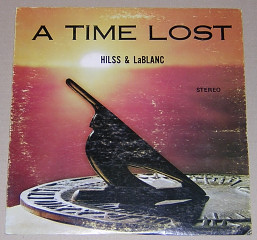
Consisting of songs written between 1969 and 1974, this rare 300 press really does evoke the feeling of being lost, as the title implies, with a stark, lonely-sounding basement production, reverbed vocals and acoustic guitars being the basic foundation for short tales full of love-lorn alienation. What could have turned out to be a very typical work of heartsick youngsters, this cleverly (although perhaps not intentionally) avoids sounding like much else from the era. Multi-tracking to good effect, Mike LeBlanc and Pete Hilss also added electric guitars, bass, organ and piano to the happenings, while trusty old Bob "Chinka" Boom offers percussion from his rudimentary machine side of the world (I'll get back to this later), and more lively Jerry Labash guests on flute on "The Airport Song". This is undoubtedly one of the set's highlights (and not just because I'm a sucker for flute), with a very succesful musical transcription of the fleeting now that comes from being in the midst of thousands of people, all on their way to somewhere else... or "hurrying to get there but going nowhere". There it is again: a time lost, but we really don't know where to look for it.
The psychedelic "Photographs" is also tapping into that same fountain of dreams once shared:
"Looking at the yellow faded pictures
It's easy to read between the lines"
Simple but trippy organ and electric guitar, aided by effective vocal harmonies, send you deep into yourself looking for something important, the only trouble being that once there you don't know where to start. Had this been a proper band the mid-section could quite likely have turned into a raga-styled jam, but part of the charm here is the way they keep it all very short, making the most of every second there is.
Speaking of full bands, "The Drifter" is driven forward by a cool guitar riff, and I could easily see Pigpen lead the Dead through a flamin' hot version of this. Hilss & LaBlanc do however once again turn the limits of their numbers into part of their artistic expression and deliver a whole new concept, that of an introspective folk duo with a drum machine doin' a bluesy outlaw rocker - and it's a total winner!
So, about Bob "Chinka" Boom then: in my pre-teens pretty much all records I had were by bands with drum machines. Had I known then that just about the only LP using this device tucked away in my collection some 20-25 years later would be this one, I'd probably have been very disappointed with myself; these days I really can't find much saving grace for the rhythm box (see what it did for Michaels & Hack, for example). But Hilss & LaBlanc take advantage of the static time-keeping and come out with a highly unique sound. Perhaps this LP would've been even better with congas and/or tablas, but it would at the same time have robbed it of that other, undefined idiosyncratic brilliance. By the way, unless I'm much mistaken most of the basslines - inventive and busy as they are - are being played on a keyboard. To round up this musicians' corner it also has to be said that the entire LP is peppered with cool guitar fills, perhaps never more so than in the case of the twin leads (one wah-wah) on the closing "Twenty One", also offering the following lines to ponder for a while:
"It's your move the dealer said
The ace of spades and the jack was red"
"A Time Lost" is a rare jewel in that it sounds like a snapshot of someone's "now", but identified as such only in the form of a time capsule filled with days both long gone and yet to come - that's not a "now" like we know it, is it? Listening to this through headphones under the right circumstances can be a gateway experience of sorts... like moving on while standing still... if the thunder don't get you the lightning will. An incredible record for incredible times, may they be lost or waiting to be sculpted yet. (2009)
GWYDION - Songs For The Old Religion (Nemeton NEM-101) USA 1975
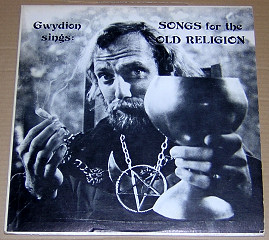
In the dark ages now commonly referred to as the early 90s, this was something of a big ticket item and could be seen going for bids in several of the important mailorder logs, with all the expected praise to follow it. Somehow the intervening years haven't been too kind on Gwydion though; these days the magic people once heard is more often than not reduced to a "Gwydion? Yeah, cool cover but the music's really lame" or similar. But as one who fell in love with "Songs For The Old Religion" back in the said dark ages and still think of it very, very highly, I decided to stand up for the man and his music. Here goes...
The cover is indeed a classic, with Gwydion dressed up in full druid regalia, holding a spliff in one hand and a goblet in the other. Not only is it a distinct cover which you're not likely to forget anytime soon, but it also gives away where Gwydion is coming from - he's both the Renaissance Faire pagan and the hippie mystic (not at all always the same thing, mind you), and as one takes on the other the result is magickal folk music with a psychedelic glow & shimmer to it.
A local Californian private pressing, the sound is rather lo-fi, murky and thin-sounding at the same time, almost as if you're pressing your ear to a wall hoping to catch the drifting notes from the next-door room. On this album this is a benefiting factor - close your eyes as Gwydion counts in "The Lord Of The Dance" and you'll likely find that the room the California Wicca Blues Band, as they call themselves, play in is in fact a forest glade where the master of ceremonies is holding his musical court. Whenever I slap this on I find myself standing there, shadowed by a tree & carried away into a world that's part dream and part something else, but certainly not reality.
The aforementioned "The Lord Of The Dance" is the perfect introduction, a joyous upbeat tune with a near-bittersweet undercurrent performed on acoustic guitar, recorder, percussion & femme backing vocals, and lyrics that set the scene:
"I dance at the sabbat when you chant the spell
I sing and dance that everyone be well
When the dance is over, do not think I'm gone
I live in the music, so I still dance on"
Following this trad tune is mostly original material, one by femme singer Dana Corby (who provides the harmonies here, as well as lead vocals on two songs) and the bulk of the others by Gwydion. The instrumentation basically sticks to the same formula as used on the first cut, with additional electric guitar, dulcimer, mandolin and tin whistle, while the hypnotic feel mainly stems from two things: the highly effective percussion (congas, handclaps, bells, hi-hat & more) that's used on many songs, and the effectladen vocals. Sometimes the two work together, as on the chorus of "The Wintry Queen", and in fact what studio trickery there is here really doesn't sound like that of any other LP I know of; there are odd scraping sounds from strings & percussion run through some cheap reverb and delay units and they come and go on most tracks, creating a wobbly, trippy feel. Check out the end of "The Raven Is Calling" for example.
A sidenote, which I've always found fascinating, is the similarities between several of Gwydion's songs, especially his vocals and melodies, and some of Dando Shaft's material (try "Whispering Ned" off their second LP and tell me you don't hear it!); perhaps a coincidence, perhaps not. In any event I like the idea of seeing Gwydion groovin' to the sounds of the Dandos, grabbing a guitar & coming out with something beautiful.
Most reviewers single out "The Sungod", one of Dana Corby's contributions, as the highlight of the album, and rightly so I guess - but then again I think all tracks are highlights. She has a piercing, vibrato-fueled voice which I've seen compared to Grace Slick's & that gives you a rather good idea, and it would certainly have been interesting to hear more of her material as it differs considerably from Gwydion's; hers is less trad-influenced and more psychedelic folkrock, with plenty of congas, electric leads, and again those effects.
As is often the case with the LPs I describe here I find it very hard to single out specific tracks, these are after all some of my favourite albums & as such usually solid spins all through. A special mention here could be made for "Harvest Dance" though, not only for it being a killer track, but because it, like "The Lord Of The Dance", has that very special upbeat but to me also slightly sad groove going on, which is one of the most appealing things with "Songs Of The Old Religion". "Harvest Dance", and the LP as a whole, is steeped in tradition but takes it elsewhere with very small steps at a time, warping your mind so slowly that you may not even notice it at first. I've been heading out to this forest glade every now and then for fifteen years, and am still not really sure what I'll be coming back like.
Loads could be written about the late great Gwydion and his life, and perhaps one day the story will be told in full. For now though, here's as much as he will offer:
"Though mortals deny and deride me
Till love must rise up and depart
In a dread, secret place She will hide me
Sealed up with the blood of my heart"
(2009)
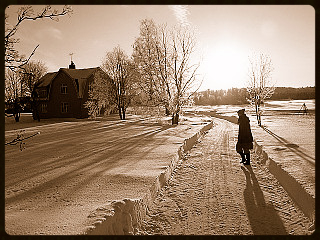
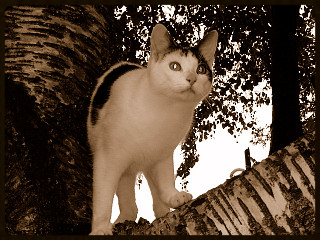
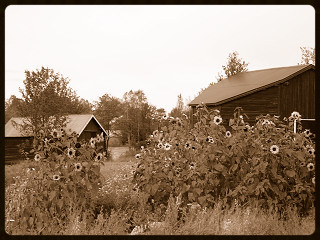
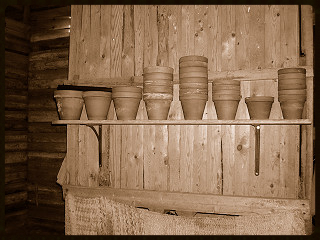
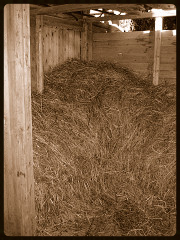

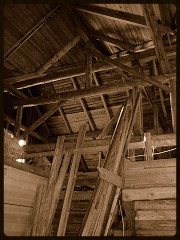
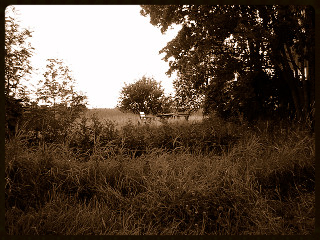
MIKE & LORNA McCLELLAN - The Life Of The Land Record (Topsoil TSR-7064) USA 1974
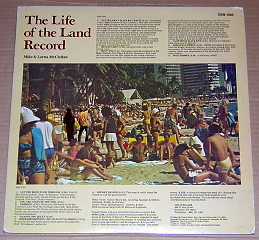
Unlike the other records I've written about here, this a rather new acquaintance but one that I've been listening to so much the last few months that it feels like an old pal already.
A concept album of sort (but unlike most other such that I've encountered) this has two dominating themes: Hawaii and environmentalism. The Hawaiian bit's obvious both musically, with side one especially being seriously influenced by traditional island music, and lyrically/thematically, where the lyrics deal heavily, and provocatively, with environmental issues that if anything are more valid today than they were in 1974. The Life Of The Land is in fact "an effective environmental research and action group", and all proceeds from this LP were to be given to the group.
On the first side the Hawaiian slack key stylings meet a sort of lazy, laidback folkblues thing, sometimes instrumental, sometimes with vocals. Very relaxing, to the point of me just throwing away whatever I have at hand for the sake of just sitting down with a slight smile thinking of warmer days (not hard, as I'm writing this in November with a snow-covered field in front of me, could I see it out there in the absolute darkness). Both Mike & Lorna sing and they do it just like they play their instruments - good, but far from flashy & I'm all the more grateful for just that. This side has the same sort of old-timey friendly feeling as "Petaluma", and if you wanna feel mellow, this is all you need. A further reference could be the most trad-sounding moments of Leon & Malia.
So, if the first half is a Hawaiian Norman Greenbaum, then side two must be a similarly coloured Michael Hurley or even Holy Modal Rounders; the instrumental setting expands to include fiddle, violin, clarinet and odd effects, with all vocals in English. "Let The Beer Flow Through" is a sort of happy freaks mariachi (notice the whistling that goes all the way through the song!) about the way people just drop their cans & other junk where they stand.
In "You Are A Man Of The Soil", a folky singalong done by Mike solo, the lyrics put down straights, hippies and most others too:
"In your air-conditioned car
You're doing 90 miles an hour
Do you know where you are?
You are on a concrete freeway
Cement above and below
Where there used to be trees
Making air that you breathe
But that didn't you know"
/.../
Now your brother is the eagle
and your sister is the toad
Likewise the armadillo that
We kill on the road
We're kin with the wildweed
I want you all to see
When the poison and the kill's
Given time it surely will
Get around to you and me"
/.../
I don't use LSD
I can't escape DDT
In the place of my birth"
Yeah... this is perhaps not too hard to swallow for most people, although few actually bother to do something about it, but I reckon more would feel a bit uncomfortable with the "Talking ZPG Blues", a talking blues delivered so utterly lazy and blase that it really doesn't feel like one at all, about the consequences of setting kids to this world. The laidback sound is as prominent on the wonderfully titled "Rhubarb Morning Air (Granny's Garden)", with that sloppy sparse rhythm & fiddle that I happen to love. Best of all though, at least if you were to take the LP one track at a time, is the bizarre clarinet-driven "Garbage", full of effects (engine sounds, cartoon-like backing vocals) that make you wonder just what the hell's going on here... you know the feeling where something is sort of normal-looking but as you dig deeper you come on layer upon layer of very un-normal stuff. In fact that might be a good way to describe this LP altogether - Mike & Lorna look like clean & tidy born-again hippies, but they turn out to be hardcore environmental activists that don't want nothing of straight society to stay the way it is. As I happen to feel the exact same way, this is currently a household soundtrack, and I expect it to be for a very long time. Now excuse me, but I'll go blast "Rip-off Island" at a very high volume, maybe someone influential might pick up on it & see the light. What was that Merrell used to sing? "You better get yourself a woodburning stove...", and while you're at it why don't you set up an outhouse too? (2009)
HANK & LEWIE WICKHAM - Back To Back (Motherlode ML SLP 1020) USA 1973
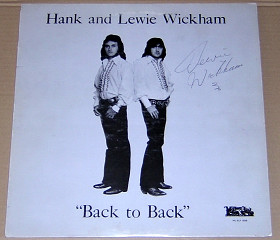
Everytime I find an LP with a reversed negative covershot, my expectations are raised considerably. Hank & Lewie Wickham's "Back To Back" tucks away this special treat onto the back cover, just so you'd easily miss it when browsing the bins. Symbolically telling of the record's contents too, but more about that later on.
The front cover would likely have you believe that this is an average early 70s Southwest lounge/barband/rodeo entertainment act, and in a way that's exactly what these brothers were; having been blown away by "Back To Back" I've picked up every record of theirs I've come across, and all but one have been archetypical local coverband offerings (and the one exception, 'Hank & Lewie Wickham With Johnny Dagucon', wasn't all that exciting either).
However, the Wickhams had one masterpiece in them, the stunningly personal document that is this little beast. Interestingly, it's billed as a sort of split-LP, with Lewie doing side one, Hank the other, but I doubt anyone would really hear it as "split" - these guys are together... even when they're apart. Mental connections notwithstanding, I reckon they participate heavily on each others' sides.
Their time around the bars certainly shows, as the album is often only inches away from being cheesy, with bittersweet and easily accessible melodies, but the airy sound sets it apart, as does the seriously dry and dusty no-frills production. Full band at times, lots of acoustic guitar, occasional pedal steel & electric leads, piano, fiddle, flute, congas, harmonica, vocal harmonies, but always as light as a feather. This contrasts quite a bit with the lyrics & vocals: even when the words are tongue-in-cheek the singing tend to be slightly melancholic, and when they deal with big stuff (death) it's like standing at the crossroads where a wrong turn will soon have you stranded at a trailer park inhabited by blue-haired grannies, dead junkie bodies & your bluesed-out Uncle Charlie reminiscing about the good ol' times, all amidst fire & brimstone on one side and a barbecue party on the other, and you have no idea where the hell you are, or even who you are anymore. You'll have to listen for it though, or else it'll just pass you by like a VW van on its way to New Buffalo.
Already having said that it doesn't sound like a split-LP at all, I nevertheless have to tip my hat in Lewie's direction as his side is definitely the stronger one overall. "Family Picnic" is full of uncles, cousins, hot dogs, cakes & snakes, smelly kids - "what a lot of fun" - and the perfect opening on a perfect side. "Answer The Wind" starts out like a country ballad, but turns into something else everytime the Chill City stick comes out of nowhere with its percussion and heavenly Brewer & Shipley-styled harmonies. "U Haul Trailer" tells the tale of separation in a disarmingly frank manner:
"I've filled the tank
I've checked the tires
I've packed the trunk
By someone else's standards
With a lot of junk
A trailerload of memories
From happy times
I just wish someone was here
To say goodbye"
"This Good Life" is total homesick truckdriver sappiness, but gets away with it, strings n' all (they actually benefit the tune, as does the electric guitar, with a tiny Beatle-shade to it).
"Sweet Bye And Bye" (based on an old trad number) finishes the side in glorious style; an odd mix of sad, observing verses and a brief, joyous gospel-like chorus. Lewie's voice is as intimate as if he was singing right in front of you, with an underlying tone of sorrow and regret:
"I knew a man who couldn't lift his leg
Or wiggle his toes
And he couldn't bend his arm to crack an egg
Nor blow his nose
He couldn't scratch his head
Nor wink his eye
Ain't it weird how things stop working
When you die
In the sweet bye and bye
In the sweet bye and bye
We called a doctor in to try to find
The cause of death
'Cause his soul had left his body far behind
And out of breath
We asked the doctor where the blame belonged
When you're dead he said
Most everything is wrong
In the sweet bye and bye
In the sweet bye and bye
We laid him out and they dressed him up
Fit to kill
He sure looked nice
The family lawyer came and he read the will
And gave advice
The preacher said his soul had been set free
Ain't it weird that's the way that things should be
In the sweet bye and bye
In the sweet bye and bye
Well, I can lift my leg and turn my head
From side to side
But something way down deep inside is dead
I think it dived
And if my poor old spirit took a dive
Ain't it weird that it should leave me
here alive
In the sweet bye and bye
In the sweet bye and bye"
So, how do you follow this? Hank Wickham decided to kick in with a song about his girlfriend who died from an overdose, "Ode To Mary". Yeah, this stuff is almost painfully real - they don't care one bit about keeping it cool & not going over-the-top, and on their way they build a mountain over hip cynicism before going straight from heart to tape.
Side two's other highlight is "Luana", a loungey love song with an odd background effect, congas, and a spoken intro soon giving way to falsetto harmonies... almost psychedelic in the same way as Jove, for example, can be just that at his best.
Hank's remaining contributions round off the album in a good, lovesick style, aided by light fuzz ("Everything") and flute ("Lyrics").
There are so many private/local records out there which are said to portray the real smalltown America of the 1970s, but to my ears many of them are just third division takes on the mainstream artists of the era. "Back To Back" doesn't sound like much else though, and is in some ways a brief look into the Wickham's own photo album, all faded pictures of a distant time and place, and as such the perfect snapshot of a reality as it was and never will be again. (2010)
SOWER - Sower (Grand Trine Records, no #) USA 1977
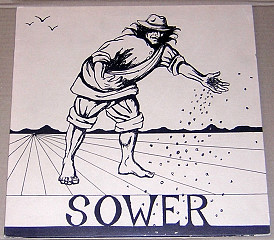
Let's stay for a while in New Mexico, shall we? I'd happily place a bet on the fact that the bus heading for New Buffalo (mentioned above), had two outtasight hippies in it, known to themselves, and perhaps a tiny few others, as Sower.
The counterculture was still alive & happening in the Southwest during the second half of the 70s, with communes of all sorts quite literally dotting the landscape. Lama Foundation, Reality Construction Company, Red Rockers, Ortiviz Farm, Libre... all the stuff of legend. Exactly where Sower fit into all this isn't clear to me, but they are so much of their time and place that it would feel weird writing about them without at least namedropping some of the head communities of the area.
I'm sure the cover photo on the back would scare off most people who can't stand smelly longhairs, but should anyone brave it a bit & stay long enough for the opening track "River Road" to come on, this is what would greet them:
"I can tell where you been
From the calm that's within
And the faces you don't try to hide
For the love you've got within
Is flowing again
You've been listening to the river again"
Yes, Sower dip head first into the deep hippie mystique & they don't bother to get out of there for the rest of the LP either. Me, I'm most thankful for that - there are more than enough goodtimey bands of this ilk, celebrating their lifestyles with a goofy sense of humor, and there are also those overly serious ones heading off into pomposity, but this particular record doesn't fit in with either of these archetypes. Instead it follows its own quirky road, which is part laidback happy pothead, part New Age (lyrically rather than musically) third eye revelations & part offbeat basement manifestos.
The aforementioned opening song stands out a bit on side one, as it attempts to be some sort of typical hippie duo/vocal harmony folk thing, but not really getting anywhere near the slickness usually associated with that genre. Batdorf & Rodney would've been heading for the hills, had they heard this one!
Most likely, the rest of Sower LP would not have been enough to bring them back down either... the loose, rambling vocals & guitarpicking (acoustic & electric), halting drums, flute, violin & primitive synth all hover around in the air looking for something, but seemingly with their eyes closed & seldom touching base (nor bass - no such on here) with each other. Far-out it certainly is, but never gimmicky, as such a notion could imply; this is the sound of local freaks with a rightly disdainful view of the big stages, the sound of an organically raised middle finger directed at plastic LA crap & the people behind it.
Much of the LP is rather moody, but there are plenty of sidesteps, like the joyous hippie hoedown of "Reborn" which starts off side two with a blissful smile & follows this with the nearly-rockin' "Waiting For The Rock To Roll", the psychedelic lead guitar of which serves as a perfect introduction to the total barn-brand acid folk dementia of "Song For The Singer". Crashin' & splashin' cymbals, rolls on shoebox toms, seagull electric guitar leads & forceful acoustic rhythm, haunting violin, warbling flute & on top of it all a monotone vocal from someone who's been over to the other side shaking hands with God. Did he make it back? Hard to tell, really.
"Green Fields" is only slightly less of a headfuck, and may lyrically be the epitome of what I tried to capture a few sentences back:
"You can keep away from me: TV
Keep me off the screen
I don't like machines
Concrete buildings, cardboard boxes
Plastique! makes me nervous
I can't think!
Look at your feet
I think we're flying"
Some of the LPs I've written about here may not be something I expect legions of collectors to go crazy over, but why Sower is not a household name amongst the hipsters looking for buried local US sounds of this era escapes me. They don't sound like much else, it's pretty rare, it has the look for sure... and it's awesome. Little Joe Gomez nods in approval. (2010)
GABRIEL GLADSTAR - A Garden Song (Flying Guitar, no #) Canada 1973
2nd pressing - USA 1981 - shown to the right.
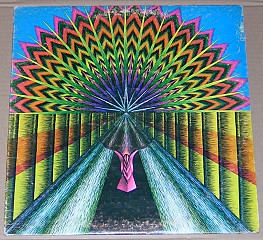
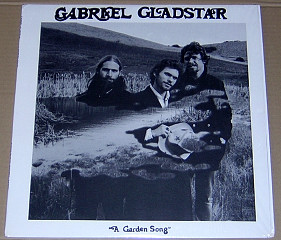
Gabriel Gladstar arrived here in spring 2005. I can't recall why I bought it, as I'd had at least the bulk of the LP on tape for years prior without it making much of an impression; perhaps the timing just wasn't there until this beautiful day, with clear blue skies, sunshine, melting snow dripping from the roof & a head full of plans for the intensity of the coming months. Plant me now, dig me later... harvest time, alligator. Whatever, from the moment I slapped this on I knew it was a very special record. Separated by years & continents, our garden songs were/are much the same:
"I'm out in the garden
Planting the ground beneath my feet
You might think I'm crazy
But I'd like to have something to eat
You can fly around in your 707
With the chicks eatin' out of your hands
But if you ask me, boy,
You're wasting time
You better learn to live with the land"
Few songs have seen so much playing time in this house as "Garden Song" - the best possible start of a day when groovin' good & mightily with Mother Nature is on the agenda & the roar of the world just isn't anywhere to be found.
A Laguna Beach trio relocating to WA, before eventually heading back to CA, is about as much as I know about Gabriel Gladstar, but they seem to have made some impact back in the day - Phil Pearlman was a fan, as was Bobbi, Clyde & The Seaweed Cowboys... and the need was apparently there for a 1981 2nd pressing of the LP too (shown above to the right). Judging just by the musical qualities I'm not surprised; "A Garden Song" is an accomplished hippie folk LP, with stellar songwriting, good acoustic guitar picking & excellent flute work, very sparse percussion, great vocal harmonies... as gentle and dreamy as it gets, but never once losing its edge. It's kinda rural, but in a very West Coasty way... no signs of pending snowstorms, lack of firewood, or washed-out dirtroads in these grooves; this is in celebration of the green & flowering garden, the cliffs & the rolling ocean, and the strolling on a highway trying to hitch a ride to Mendocino. In no way should this be construed as them being lightweight though, because they're certainly not; just an easier soil to work with, if you know what I mean.
A very consistent vibe is present throughout, the kind of record you put on & dream away to; not even the frantic fuzz of "Phantasy Power" breaks this spell (fuzz breaking a spell? Unheard of!). There's a feeling of them being slightly distant too, as if they play & sing from afar, separated from the listener by a thin layer of silk which leaves them as shadows in the fading sunlight, only the notes & a whiff of incense passing through from the other side. The songtitles amplify this impression: "Flow", "Gone Tomorrow", "Sunset Song", "Alone With The Ocean", "Rain Song"... "a channel is created for the soul to ride through on a beam manifesting truth", to quote the liner notes.
As I'm writing this, spring is on the horizon again, small bags of seeds are picked up from the drawers, pots being cleaned, sketches of the garden are laid-out on the kitchen table, and the sound of "Troll Jam" mixes with the crackling from the woodburning stove still going most of the time. The farm ain't no movie, but Gabriel Gladstar is its soundtrack. (2010)
(Note: a live recording of Gabriel Gladstar can be found here: http://www.flyingsnail.com/Podcast/gabrielgladsta...
It's not a wholly successful show, I'd say, but some parts shine brightly enough to be worth checking out if you're enjoying the album. Non-LP material is performed too. Interestingly enough, the owner of the website is noted environmentalist Ponderosa Pine, once in the Kindred Souls together with Douglas Adams. Kindred Souls are also contenders for Farm Fave exposure... one of these days perhaps.)
CLAY RINESS - Rollin' In My Changes (Weary Wolf Records WW-DCT 001) USA 1983
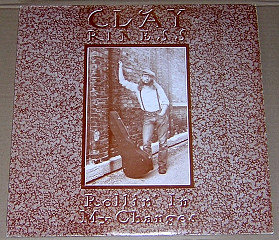
I challenge anyone with a sizeable record collection to come up with as few 80s LPs in it as I have in mine... yeah, I know a statement like that may seem rather boneheaded, but I have a serious problem with the sound aesthetics of this era & it takes a lot for me to see through it. Enter Clay Riness & "Rollin' In My Changes", an LP from the dreaded decade but nevertheless a big fave of mine. How come?
Well, it isn't because of its sound, because I do think that had it been recorded ten years earlier it would've come out even better, but to be fair it has a fully ok aural presentation. My old lady usually points out that "this sounds new" when I play it, but I don't quite hear it that way anymore. Granted, it has a lot to do with the music; countryfolkblues lends itself to a certain type of treatment, namely acoustic, and the worst aspect of the 80s usually lay in the electrics & electronics. So, to get this subject out of the way: yes, here's an 80s LP, and yes, I think it's amazingly good.
Often one can get a pretty good idea about a record just by checking out the titles & various details on the cover and/or in the liners; this is a prime example of such examination. How could it not be raw, rustic folk with a label name like Weary Wolf & a publishing company called Folked Up Musics, with songs like "Trapper", "Yodelin' Cowboy", and "Knock Kneed Country Woman"? How could it not have a slight beat/jazzy/coffeehouse cool to it with a poem like that by Robert "One Man" Johnson on the back? Right - what you see is what you get, and it's all the better for it.
If you haven't noticed yet, I'm a sucker for the Americana mythology of the hidden lands of the backwoods - the mountain men & outlaws, the log cabins by the tiny creeks, the homesteads & run-down farms; that an album which digs right into this type of stuff would be to my liking is perhaps no major surprise:
"Twenty some odd years he rode the mountains
Just to get away from family life
Pullin' bucks from people there who didn't
Chose to leave his family and his wife
/.../
Later on I guess he chose the backwoods
Trap to trap, loaded gun in hand
Say the coyotes "Hell, he never missed one"
And the people that he'd take a stand"
This track, "Trapper", is one of only two songs that have full accompaniment with drums, bass & femme backing vocals; otherwise Clay sticks to himself & he's doing just as good that way. The guitarplaying is absolutely topnotch, vocals are soulful & deliver the moodiness of "Me And My Old Man" (perhaps my favourite on here; my father is walking the greener pastures but I still relate heavily to this song) and "Yodelin' Cowboy" with the same ease as the ironic wit of "Movin' To The City Rag".
The songwriting is also of a very high class, balancing the derivation that is part of this game with original ideas that stand up to comparisons with (should-be) classics of the genre, like the Bob Frank LP on Vanguard (another likely Farm Faves review subject, that). Also mandatory for folkblues LPs, at least to my ears, is the need for a few spins to let the songs grab hold of you - it hardly ever happens right away.
Rivaling "Me And My Old Man" for the hotspot is the, also aforementioned, melancholic "Yodelin' Cowboy", full of nostalgia and late-night sadness that may come when looking back upon happier and/or easier times - been there a whole lot myself - but I wouldn't want to be without any of these ten songs. "Rollin' In My Changes" is a seemingly lost chapter in the history books (=record lists), but I'm sure collectors will catch up eventually. Be the first one on your block to have it comin' home in a box. (2010)
(Note: some time after this review was written, I was in touch with Clay & got copies of his 2nd LP, "Down To The Cellar", again released on his Weary Wolf label. This is at least as good as his 1st LP. Still at it, Clay's been putting out music in many styles & formats; the CD "Little Windows" (you guessed it... on Weary Wolf) from 2004 is especially worth mentioning - a great album in a more contemporary singersongwriter style.)
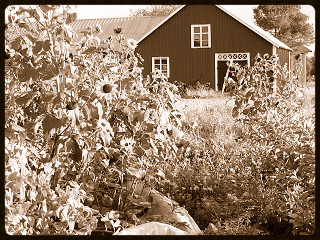
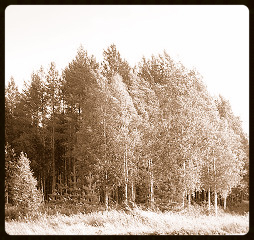
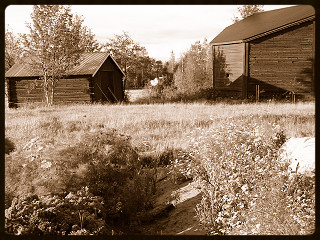
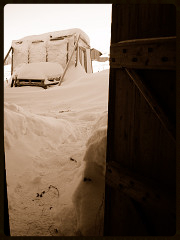
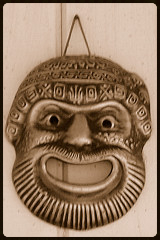
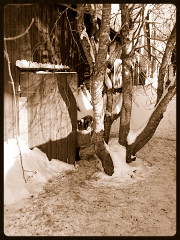
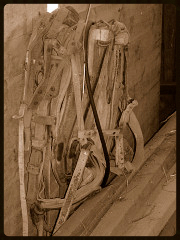
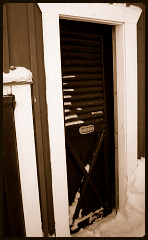
EFFERY LIBERMAN - Jeffery Liberman (Librah No. 1545) USA 1975
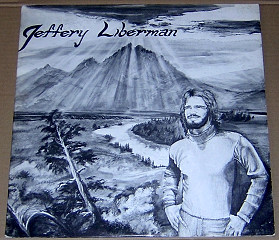
This was one of the first private pressings to gain recognition amongst psych collectors, and it was also one of the first such I heard. It blew me away & I've remained that way for almost twenty years now.
My blown mind aside, the record seems to be currently stranded in a sort of Nowhereville - old news to old heads, new heads either don't exist or perhaps they're too busy freeloadin' on other, hipper sounds.
However, I can't see any reason why this shouldn't be cock o' the walk when it comes to late-stage (circa 1975-1980) vintage private pressing psych, as all the required elements are here: the 'deep', 'lost' mystical vocals, enough guitar trippiness to last you a lifetime (fuzz! wah-wah! twin leads! phasing! backwards!), electronic weirdness, and not least that rare & yet undefined quality of being really, really, out-there, which many private LPs from the same time are said to come with, but hardly ever do. If you ask me, the first Jeff Liberman is just about the only record I know of from said era that fully delivers these goods, leaving all other contenders way behind (Marcus? Bobb Trimble? Ho-ho). Perhaps a considerably less refined Bob Smith a few years down the road is a decent-enough comparison, should such be needed.
There are obvious guitar god aspirations at work here, and these are likely what once drew people into its vortex, but to me it's 50-50 between every single component of the record. I love the moody, folky-yet-heavy songs, like "Dreamin' Sailor" and "Catherine", as much as the whole 8:57 of "Phenaphen #3", where Liberman unleashes every psychedelic guitar trick in the book, coupling it with simple lovelorn lyrics (delivered in such an emotional manner that they come across as pure poetry by way of a fragmented psyche), or the straightforward-but-lysergical "Boogie Blues", which sounds like Canned Heat with a guesting Steve Hillage taking all solo cues.
Overall it's very hard to single out specific tracks or even moments here, as it basically is 37 minutes of dreamstate music (only slightly interrupted by "All That Jazz", where an acoustic guitar steals the solo space - it's still very good, but perhaps a tad out of place). That said, side one is utter perfection, while side two is a notch or two less as it drops the heavy vocal stuff & go for instrumental flights of fancy only - but this is getting close to splitting hairs, there's really not a wasted moment on the entire record. Or, well, there are several, depending on how you look at it...
Like with many other albums of the same ilk, this is initially best heard late at night, and/or through headphones. Come to think of it, my introduction to it was a tape that I used to have in my Walkman when taking long mid-winter walks with our dog a long time ago; the moonlit snow and dark trees were the exact right environment to be in when first experiencing this. Should you be stuck in Californian sunshine, or similar, I have no doubt that you'll still find the right set & setting for Jeffery Liberman to step inside your mind & shred it to pieces... you just gotta poke around, as the Dead put it.
The effort will be rewarded, or rewarding rather, with your inner self stumbling forward in a long, winding tunnel through the earth, where only the occasional root will be sticking out for you to grab when you wanna slow things down... the kind of trip that could change you for life if you let it. If not, well, not all can follow... on the bus or off? I guess you may still enjoy the backwards guitar though. (2010)
OM HUNNICUTT - Escaping From Today (Hillside HSC 103) USA 1974
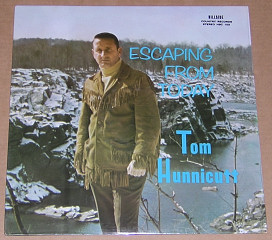
I'm pretty sure that I only have one LP in my collection that's the work of a Marine Corps officer, martial arts expert, Christian, TM guide, and back-to-the-lander, and it's "Escaping From Today" by Tom Hunnicutt. Lots could be written about mr Hunnicutt himself - a very friendly man & quite a character - but these words will focus solely on his first record, which sadly remains a highly obscure piece of art.
Recorded 1974 in Nashville, with backing from seasoned session cats, one could fear that the sound & playing would be a step or several too far in the pro direction. And sure, it's well-played, well-written, well-arranged, but so genuine & down home, and created with so much heart & care, that a word like 'pro' just gets robbed of its meaning, had it ever had one.
Musically & vocally "Escaping From Today" is in a rather straight country-folk bag, occasionally sideleaping into small town country-crooner bar sounds ("To Fight A War"), but lyrically it's more in line with the counterculture of its day, focusing heavily on environmental issues, although there are also more genre-typical subjects, like the rural nostalgia in "Arkansas". Guitars, banjo, fiddle, organ, piano, bass, drums & percussion shape storytelling songs into gold-shimmering nuggets; they may sound deceptively simple when they start out, but soon enough a spine-tingling, bittersweet twist & turn freeze the moment & you find yourself inside the songs. Or at least I do: I am the longhaired hitchhiker in the titletrack, just like I'm the moonshinin' father in "Arkansas" & the polluted stream in "Potomac River Song".
While there may not be all that many of us around, I pretty much guarantee that anyone with a penchant for ecological concerns, old-timey rural tales & things (Into the future!, obviously), and authentic backwoods music will love "Escaping From Today". I strongly suggest that all others check it out too - you may be sucked into this jukebox that plays like a '74 road movie where the actors are few & quiet, the roads poor & the mailboxes along them about to fall over. Doesn't that sound just like what the doctor ordered? (2010)
(Note: Tom Hunnicutt was later in the magnificent Honeybee Ridge, whose self-titled 1979 LP will eventually/hopefully also be part of this slowly growing collection of ramblings. Amongst other things it contains a great song called "Big Ol' City", which is partly "Arkansas" in new clothing. Many years later he released a cd-r, "The Astral Years", which is amazing spacey psych folk & with some editing and an LP release it would become an instant classic.)
KINGDOM - Kingdom (Specialty SPS 2135) USA 1970
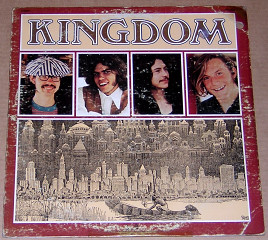
These days there aren't all that many heavy psych albums still lingering around here; it never was my favourite mindexpanding subgenre to begin with, and over time I've come to feel that many of these records tend to sound cool but offer little in terms of songs, and/or overall moods that move me beyond the pantomime aspects that the style lends itself to so well. There are, however, exceptions, and here's one of the best: Kingdom, a Californian four-piece with a sole LP on Little Richard's label, coming with the sound, songs and moods that send me into mental overdrive everytime I slap it on.
On paper they don't look like anything special, with a line-up of twin guitars, organ, bass & drums and a blues-based sound, but the sum of it all goes way beyond the separate parts as there's basically nothing here that's not incredibly well-done, nothing that sounds out of place: the songs are refreshingly short, with more hooks & strong melodies than on your average pop LP, but they still leave plenty of space for the grungy guitars, which are as good at slashing chords as they are playing excellent solos, tempo changes are frequent, taking the songs back & forth without it ever sounding forced, and the rhythm section is heavy but endlessly grooving. Gary Varga on drums definitely knows how to roll on the toms with the best of them! (By the way, the one complaint I have about this LP is that the other half of the stompin' backbeat, bassist Ed Nelson, is a often tad low in the mix.) Top all this with great, soulful vocals & harmonies - the lead singing is of the 'manly' character one kinda expects in this bag, but somehow manages to avoid falling into the macho posturing that have ruined more than a few hardrockin' LPs.
"If I Never Was To See Her Again" is perhaps the track most obviously engraved in the back of my head, due to it being the soundtrack of a particularly pathetic 1998 spring fling, but it would've been a standout even without this questionable enforcement; here Kingdom slows down quite a bit, picks up an acoustic guitar to play along with the electric assault (great bluesy solo from John Toyne) & out comes a total classic. It was also released as the A-side of the band's sole 45.
Another one I'd like to single out is "Have You Seen The Lady", where band leader Jim Potkey charges the way on organ, giving the instrumental parts a definite resemblance to Pugsley Munion, another heavy outfit scoring high on the sound/song/mood-meter.
Kingdom's epic show-closer (wish I'd been there!) was no doubt the one long track on here, "Morning Swallow", which at 8:05 lets Potkey stretch out quite a bit, on guitar this time, and he does this just as well as he starts off the LP with the highly concentrated solo on the 2:20 "Waiting, Hesitating". Not a moment inbetween is wasted either - to my mind, Kingdom are prime contenders for the lowkey, workingclass championship of the harder, guitardriven rock of its time & beyond. And yes, please send me that mint cover you have tucked away for better days - a five pound bag of autumn wool can serve as trade bait. (2010)
(Note: I was happy to hear from the producer of the Kingdom LP, Barret Hansen, perhaps better known under his alias Dr. Demento, in late 2012. Through a bunch of emails the Kingdom story evolved & as I believe it hasn't ever really been presented in full before, I'm proud to share it with you - in Barry's own words:
"I was hired by Specialty in November 1968 primarily to prepare LP reissues of their R&B masters from the 1940s and 50s; I ultimately compiled over 30 of those. Art Rupe, the owner and CEO, also wanted to put out some new product. He had placed a few small classified ads in various newspapers. Earlier in 1968, Jim Potkey, then 17, had answered one of those, and Specialty had made a couple of demo recordings as a solo artist. Apparently no one was happy with the results (I never got to hear them) but Jim had been encouraged to come back later when he had some new material. In early 1970, he did so, and came to my office with his three new bandmates in tow, together with a demo they’d cut in a home studio and had pressed up on 45s, and some more demos on tape. I liked the songs and told Art Rupe so, and after listening he agreed to cut an album.
At that time the group was called Parish. Someone at Specialty discovered that another group called Parish had recently released an album, so the group had to pick a new name, and Kingdom was chosen. (There have subsequently been other Kingdoms, but we could not find anyone else using the name at that time).
I woodshedded the band for a few months, two or three times a week in Jim Potkey’s parents’ garage, in Covina, CA. Covina is a middle-class suburb in the San Gabriel Valley east of Los Angeles. Though a pleasant enough community with good amenities, it was not by any means “hip.” The clubs in the area hired mostly cover bands. The other members all lived in that area except for Ed, whose parents (who were from Oklahoma) lived in a somewhat more downscale blue-collar town called La Puente, a few miles away.
We began recording in early summer 1970. The first session was at Village Recorders, a famous studio used by the likes of Fleetwood Mac and Eric Clapton. We cut the basic tracks for “Seven Fathoms Deep,” “Prelude” and “Back to the Farm” at that session. Everything went fine until Art Rupe got the bill. He had never paid anywhere near that much for a session, and hit the roof. We relocated to Paramount Studios in Hollywood, also fairly prestigious (Hendrix had recorded there) but less pricey, and the album was finished there in four or five more sessions. They charged extra for Dolby at that time, and Art didn’t want to pay that, so the Paramount sessions were done without Dolby (you might detect some hiss here and there, along with the noise from the none-too-quiet pressings that Specialty used).
Meanwhile Kingdom began playing a few gigs in the area around Covina. By the standards of that time they were extremely loud, and that caused some problems with some of the venues. They however developed a following, at least in the northeastern part of the San Gabriel Valley.
The LP was released in September, IIRC, and as I mentioned it was little noticed by the industry. Specialty did spring for a radio commercial featuring a well known L.A. DJ (not me) but they didn’t buy much air time for it. A single was released, with edits of “Seven Fathoms Deep” and “If I Never Was To See Her Again.” When Specialty tallied things up a year or so later, the album had sold 680 copies, mostly in and around Covina. The 45 never got any airplay, and I think they only pressed 100 commercial copies of that. As for the LP I’m guessing there were 1,500 copies pressed, maybe fewer than that.
In about January 1971 Ed decided to leave the band. He wanted a situation where he could be more of a leader, whereas Kingdom was definitely Jim Potkey’s band. Specialty agreed to cut a solo single by Ed. A song called “Free, Free, Free” was recorded at Paramount and released, with a humorous demo called “Pale Blues” on the B-side. Specialty, however, declined to cut any of Ed’s other songs...that was a contributing factor to my leaving the label later in 1971.
Kingdom continued with a new bass player. Eventually John and Gary left, and then it was Jim with new musicians."
Sadly, Jim Potkey died from a heart attack a couple of years ago. Many thanks to Barry for getting in touch & sharing his memories.)
CHRIS RAWLINGS - Pearl River Turnaround (Cooking Fat MS-9824) Canada 1970
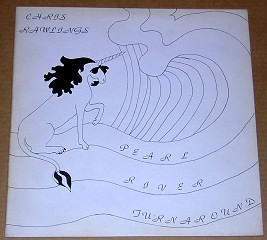
One or two of you out there may have noticed how I in my record lists repeatedly have been referring to a seemingly specific Canadian 70s folk sound; as hard to define as anything else you only take in via your various senses, the vibe I've vainly tried to describe as 'warm', 'organic', 'friendly' is definitely there but putting it down on paper (or screen, mind you) appears rather futile. Yet, anyone who's ever been seduced by the magic provided by "Letters From The Coast", "Cabin Fever", "Upon A Once Time", "Start Again" or a bunch of other locally released masterpieces, will know immediately what I'm getting at.
With time and luck on my hands, I will eventually deal with all of these, but for now we'll stick to "Pearl River Turnaround" - the first of the lot, and while I don't know how much of an actual influence it had on the others (they all did know one another though, and in some cases even collaborated), I don't hesitate to refer to it as the mother of Canadian hippie folk private pressings. The motherhood isn't restricted solely to this still-unnamed genre, either, but it's also quite likely the first independently released folk LP of any kind in Canada & would've deserved at least semi-legendary status for this alone (in more mainstream music circles, the fact that Anna McGarrigle makes her record debut here may be of bigger importance. But what do those people know anyway?).
If you ask me though, the main claim to fame of this solo debut of Chris Rawlings', is that it's quite simply an amazingly good album, one that manages to mix a youthful, near-exuberant joy with reflective, haunting material & in doing so never once losing its way as it travels the quirky path introduced by the lovely titletrack. An uptempo, fiddle-driven allegorical tale (I presume - or maybe Chris just leads a more colourful life than the rest of us?), this is about as infectious as it gets, sorta like Holy Modal Rounders sans strait-jacket, complete with a gentle giggle & lyrics that make little or perfect sense, depending on where you are & where you've been:
"Sittin' on a fence with a straw between my teeth
And the green and the blue of the forest and the sky
And a thought came to my feet and my feet began to move
Down a country road, it's
Only six miles to the Pearl River Turnaround
Never very far in the sun or the rain
If you don't turn back at the Pearl River Turnaround
Never get back again
/.../
I smoked and I laughed and then I took a pill
And when nothing happened, well I went up to a hill
I sat and I talked with a woman for an hour
'Till she left on her high heels taller than the trees
I slept and I begged and I borrowed
And it's so far back to the Pearl River Turnaround
Down a country road..."
...and eventually it comes to "The blue bottled spider man chased her by the statues of the rain soaked streets sellin' headbands as a front to the leaders of the students on the steps of the building", and if you're not hooked by then, I reckon you're a very different creature than this writer. (Interestingly enough Chris Rawlings' 2nd LP, the equally awesome "Soupe Du Jour" from 1978, had a titletrack with a similarly stoney-smilin' groove & funny lyrics - the sound of a rural pothead pixie! Nothing even slightly Gong-esque about Chris though.)
The excellent "Brook Song" follows, sounding more serious at first, with a great tack piano from Gilles Losier, but soon enough there's a chorus of kazoos & odd voices, making the overall effect more of a halfway stop between the titletrack and the altogether non-humorous "Bridge Of The Night", a brooding, abstruse tale about the battle between the mind, time & struggle for power.
"Pshaw" heads back to the safe havens of Holy Modal pixie cabin hoedown-sounds - this seemingly effortlessly back-and-forth moving could well be said to be something of a Chris Rawlings trademark. His style is not really reminiscent of anyone else I can think of (bar the Rounders then, but this is admittedly a rather lame comparison), yet it's very much of its time with all that comes with the era. Like many other major artists (focus on artist rather than major!) though, this is also what makes his LPs timeless - don't really know how I shall explain this phenomenon & I won't try here, but that's the way I hear 'em anyway.
"Song Of Creation", co-written with Paul Lauzon (who recorded his own version on "Start Again") & based on an old Hopi song, is a lovely folkpsych marvel, with shimmering acoustic guitars, great percussion, flute & sparse soundeffects. More psychedelic vibes follow on the outstanding "Iris Of Flowers", with sax, fuzz, and again some highly effective percussion; slightly mystical ("she is the mystery of circles"), this is perhaps the selling point of the LP to the more narrow-minded psych collectors out there, but eclectic ears shall only hear it as one of ten highlights on here. Yes, every single track of "Pearl River Turnaround" is indeed a highlight - grab it the next time you see it, give it some time & I'm pretty sure many of you will agree with me.
The back cover has a neat drawing of a cat amidst some flowers, or leaves perhaps, and I imagine this is none other than Sally Cooking Fat, the main character of the song of the same name, which rounds off the LP in typical Rawlings style - that of the absurd story presented in a very musical manner; many other songwriters dress up stories like these in chords & melodies that are either imbecile or just plain crap, but this particular Canadian gives them proper care & shows that this is the way to do it.
Speaking of cats, two reflections on the subject that tie in with this album: 1) our cats always react strongly to the roar in "Lion & The Jackal" (label states the full name of "The Parable Of The Lion & The Jackal"), and 2) this is very much a backwoods type of music, but not of the logger-with-giant-wolf/german-shepherd-mongrel-tied-to-the-pick-up-truck-behind-a-decrepit-shack variety, but rather that of a gingerbread house in the middle of the woods, bathing in fading sunlight, with a neat woodpile on the porch, a cat sleeping on the window-sill & yes, a pothead pixie cooking up some herbal tea on the wood stove. (2011)
(Note: Chris is still very much active, with new music (some of which is available as digital downloads) as well as digging through his archives for older material that may eventually be released - there are some real gems in there, believe me!)
SADDHU BRAND - Whole Earth Rhythm (Anna Chakraborty's Musical Sewing Machine Record Company MSM101) USA 1969
(major label reissue on UNI 73116 USA 1971 shown to the right)
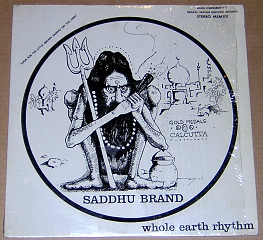

It's the first week of July, 2000, and the German Twins' legendary West Coast record trek is coming to an end. The proprietor of SF record store Grooves, Ray Andersen of Holy See fame, has kindly brought with him a few scarce Bay Area records for the Twins to take a closer look at. One of the platters is the original privately released edition of Saddhu Brand, and as neither of the Twinnies have previously heard the record, it requires a brief spin on the shop's turntable before they fork out the ungodly sum of $30*. South, being the oldest of the two, gets to pitch his ears to the sound first - headphones on, needle dropped & after only a few seconds, a goofy grin spreads across his face. Now, looking goofy is pretty much what South is all about, so to be sure there's something more going on, North asks 'good?' & the reply is a, well, goofy 'uh-huh', smile now reaching the headphones, and North knows that it's a done deal: two copies of "Whole Earth Rhythm" are about to move to Sweden.
...And here I am, almost eleven years later, still smiling happily when I think about that time, when the 'beautiful group just returned from two long years in the dreamy and vaporous land of India' first entered my heart & soul. To me, and probably South too, this is the finest sitar-laden headtrip of them all; as much as I love Oriental Sunshine or Magic Carpet, there's no question that this goes way beyond these & any other contestants. Handgjort? Sorry, terribly overrated. For some reason though, you won't find many others joining in on this chorus - not even the legions of hardcore Bay Area collectors seem to find it much more than an odd curiosity. Has the whole world gone mad?
The baba trip starts off with the mighty titletrack, which after only a few revolutions introduces the girls' chorus, picked up from the next door Catholic school; the Saddhu Brand's version of bong-fuelled eastern dreams is less mystical, droning minor key than many others from the time, rather they usually go for a subtly stoned early afternoon in Golden Gate Park-type of sound, and the girls' voices add a layer of otherworldly innocence on top of it all. You might wanna try to close even your third eye as you drift away to this - I don't know whether you'll find yourself high up in the mental trees by such a bold move, or if the deep song of the tabla has too much of a grip on you to be anything but grounded, but it'll be interesting for sure. And make that grounded - the unconscious having carved a tiny hole in the ground through which you can see beyond it all, coming to understand the very essence of the Whole Earth Rhythm.
Heavy stuff, and this vibe goes on for the entirety of side one. Flip it over & it gets even better: "People Brittle" is my fave on the LP and perhaps even my all-time fave sitar-psych track. Here the Brands head for a considerably more intense groove than what's found elsewhere on the album (possibly excepting the last third of the closing track, detailed below), and the male vocals manage to sound both agitated and resigned at the same time ("they're all just in it for the bread /.../don't mess with what I do / now thank you all very much / it's been real nice knowing you"), which results in a supreme underground feel, while the handclaps & chorus never fail to trick me into doing the eastern boogie. You should try it too - a splendid time is guaranteed for all.
By contrast, "I Give You Johnée The Truth" is utterly easygoing, with even the girls having had their heads affected by the Acapulco Gold & Silver. Or at least it sounds this way - the vaporous land, indeed.
Returning to my earlier world-gone-mad speculation, perhaps the highly enlightened sounds of the album have let people looking for the easy-guru fix down to the extent that they haven't bothered to listen to the entire LP? Because tucked away at the end is "Dabi Das' Song", 12 minutes of exactly the type of mystical midnight to dawn psychedelic raga most collectors want, and this alone should sell the LP to crowds of, well, hundreds anyway. Needless to say, Saddhu Brand do this type of thing better than the contenders too - their playing skills are overall on another level than most smittened by the East (and they aren't relying solely on the sitar for the 'exotic' touch either, they're as good on the tablas, sarod, esraj, guriji & bamboo flute too), and yet they bring out the earthy, dirty best in what they do, leaving no smell of academic scholars to mix with the incense. Indeed, "Dabi Das' Song" may even challenge "People Brittle" for the top spot. What says you, South? (2011)
*Actually, South paid $35, as his shrink was slightly more crisp.
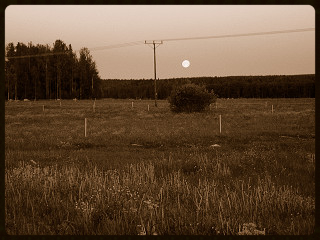
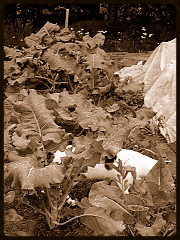
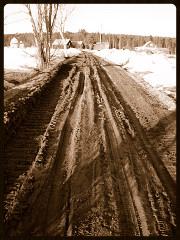
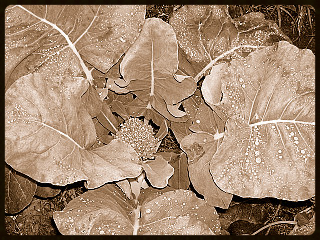
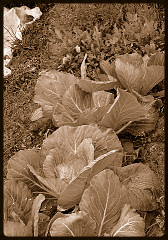
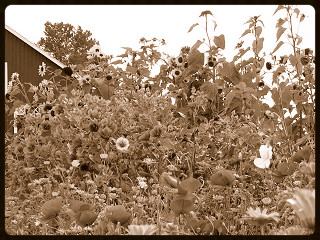
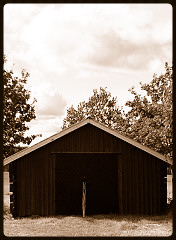
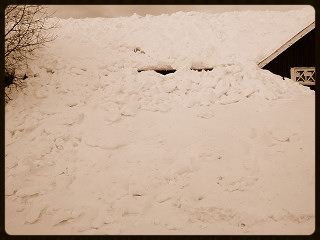
SALOON MUSIC - Saloon Music (no label, S-134) USA 197?
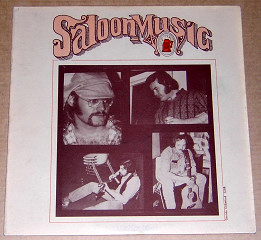
Here's an obscurity which few heads seem to be familiar with, despite it being closely related to some of the big guns in the field of rurally leaning private pressings. Having awaited its rise from unknown to much appreciated for years to no avail, I decided I had to be the first to go on paper praising Saloon Music. You see, this is the lost chapter of the Drendall, Thrower & Friends - Thrower Spillane McFarland - BlueJohn book n' scene, and while it may not be quite up to the standards of these giants, at least not in terms of peaks, it's a very worthwhile album & if you take in these four LPs as a whole, this can perhaps be seen as the laidback post-midnight backporch comedown, rounding things off in an intimate, friendly manner, before shattered minds & souls walk away towards the rising sun.
Musically, Saloon Music is in the folk-folkblues-singersongwriter bag, with its foundation being vocals, two acoustic guitars and bass. Occasionally they flesh things out with dobro, steel, electric guitar, harp, percussion, drums, harmony vocals, but it's always a quiet sound - in fact the chord-strumming guitar and overall laziness is so deep (especially on side one), that I've always thought of it as having a nearly droning quality, the kind of album that makes most sense when your head is not really where it should be and in need of calming support, yet not quite ready for the full-blown raga trip... when all you want to do is lay down on the floor, close your eyes and drift off to where the angels hang out playin' blues with Bill Pester & Tangerine is dancing across the meadow.
The four main guys on here, Jack Hamilton, Frank Schultz, B.A. Thrower, and Nelson Wood, share instrumental duties fairly, but the songwriting is mainly split between Schultz on side one, and Hamilton on side two. If you've heard the latter's solo album from '77 or so, don't fear - this is way better than anything on there, and while Jack and Frank definitely don't sound alike, neither as songwriters nor singers, the LP hangs together very well; the mood is reflective, slightly melancholic, with the lyrics being very much down to earth... 'he'll tell you of the mountains / and of the last snow of spring / tell you what it's like to be alone'... small-town dreams plagued by the "City Blues'. There's really only one track that doesn't follow this formula, the closing "Georgia Line Fever", which uses a full band - including B.A. Thrower on trademark wah-wah - and an uptempo groove, but it's nevertheless bordering on the comatose, and you get the impression that this was the last awake moment in the studio, with the band falling off their chairs in the middle of the take - too little sleep or too much beer, or both of them - hence the mystic fade-out.
While not being as expensive as "Papa Never Let Me Sing The Blues" and the others, Saloon Music is probably as rare, and also a 500 copies pressing. Due to its lack of psych, or more rocked-out elements, I doubt it will ever reach the big bucks level either, nor be reissued. Somehow this is all very fitting - here's an album that reeks of dust, cobwebs, good times n' bad times that were had ages ago, gone missing in the days since its creation, but decades later being picked up by a select few diggers hoping it will be their next ticket to ride. If only one of those souls connect with the vibe here, I actually believe that's all the Saloon Music guys need to keep a sad, slight smile on their faces; this is a record with no greater aim than being a document of songs, taped while friends were creekin' out at the goose & because of that so much greater than any rock star dream could ever be.
Years ago I was in touch with some members of the band, and it seems the perfect conclusion to this little tribute that Frank Schultz is now a horseman. If you don't know what I mean by that, please move on - I bet your name's Jones. (2011)
TAYLOR KITCHINGS - Clean Break (Union UR-00101/02) USA 1970
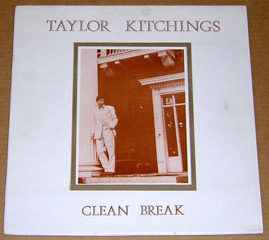
Like Steve Elliot above, Taylor Kitchings is one of those relatively well-known-by-name, but seemingly heard-by-few private pressings of the early 70s. It's a bit of a mystery as to why this is the hitherto fate of Kitchings though, as his sole LP has the weird/eccentric moves that collectors of local releases tend to crave, but at the same time its rather professional sound/execution will appeal to more mainstream-oriented 60s/70s fans, and as if this wasn't enough it also has slight (but distinct) prog leanings, with plenty of unexpected complexities hiding beneath the surface. I wouldn't be terribly surprised if a well-done reissue on a hip label would bring "Clean Break" something of a cult following within any or all of said three camps; more than most this bears the stamp of 'lost treasure' all over it.
I can't really decide whether the unassuming, simple cover design, with a clean-cut snappy dresser of an artist posing in front of a southern mansion, do little to reveal the many layers of the sounds within, or if it's actually exposing them; in any event the mildly psychedelic opener "Clarissa" immediately washes away any possible apprehensions or misconceptions you might have had when looking at the cover only. Gentle as a dream, with acoustic guitar picking, flutes & reedy organ, the song stretches out a pale white hand to the listener & leads her into a world that's instantly familiar, but yet everything is slightly distorted, out of focus & blurred by the vision of the lady giving name to the song. 'How can she be / and now she be gold / a cold yellow sun from behind' are words that don't really offer much navigation either.
Somewhat surprisingly, the path we're on then takes us to the rousing Dylan-influenced rocker "Final Grace" (with the line 'soon Uranus will enfold you' potentially unnerving you a bit, until you check the lyrics & realize you had a kinda scary Freudian mishearing) - of course it's the cover taking me on a trip, but I really do envision this album as one diffuse stroll through a giant, long-abandoned garden surrounding the run-down home of a once wealthy family, now all long gone; I see the summer sun flickering through the leaves, reflecting in small ponds & upon a lizard's back, before the shiny creature lets itself disappear in the undergrowth. Just out of sight, but close enough for me to hear his footsteps, walks Taylor himself, guiding me to room after room of green beauty, with riddles aplenty hanging from the trees. Once this aural vision had established itself in my mind, the various stylings of the record made perfect sense as we go from the shadow of Bobby to the first slight prog signs in "Beggar's Demand", onto the sublime, offbeat drifter-esque folk of "Oberon", dominated by piano & drums but with wafts of a crying harmonica adding the railroad bum touch. Had Modlin & Scott still been around, I bet they could have turned "Oberon" into a song of their own quite easily.
If "Beggar's Demand" offered a faint glimpse of the arty prog folk sound, the title track takes us another step down that root cellar, with a theatrical bent & more lonesome piano echoing out of the shattered windows of the main house towering in the distance; you can't help but feel that the first side was perhaps only a warm-up for the unleashed madness of side two, where arrangements & songs threaten to fall off the cliff on more than one occasion. "Ignatious Browsworthy" sounds a bit like an uninhibited David Ackles, and "Prelude" into "Premonition Dialogues" are really a very long way from the melancholy of "Clarissa", whose dream-like shimmer by now is but a memory. Piano & drums once again lead the way, but they come in the company of stretched electric guitar soloing, backwards tapes and an atmospheric organ. Still standing in the same unkempt garden, this is where you start to look around for a way out, and just as beads of sweat begin rolling down your face, it all ends, and you realize you're bathing in the last beams of the fading sun & all that you see around you whisper strange words into your ear:
"And as you leave us now
Though our gifts have been but small
We have no way at all
To know how far we've come
And in still more desperate days
When the faithless kneel and pray
Shall we still forever say
Our time is all our own"
Halfway between comfort & panic, this is where Taylor Kitchings lets you off the hook; the ol' Dixie mystery is as confusing as ever & if you eventually make your way back, it's a good chance neither mansion nor ghost will be there still. I would urge you to keep trying though, "Clean Break" is rewarding on many levels, it comes in many shapes, and it can take you places heavier than most. Lyrics will confound your for days, melodies may haunt you in your dreams, shadows will narrowly escape your attention. I'd be happy to learn more about what brought these songs out there in the first place, where Kitchings went & where I can go for more, but on the other hand I have a feeling that it's just perfect the way it is: timeless and strange, as Keith Christmas would've put it. (2012)
SLOAN - The First Book Of Sloan Chapter Eight (Audio 7 Records 7171AB) USA 1971
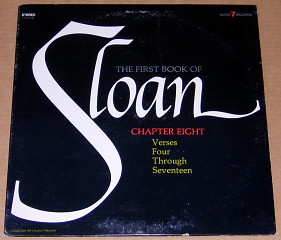
You know how some songs just knock you out cold within a few seconds? "I'm Looking For The Fire", the first track on this forgotten folk blues jewel, is one such song - seriously intense & mystical, this by itself justifies picking up every obscure young-man-with-a-guitar private pressing there is, in hope of finding that rare moment of soul-baring beauty that most songwriters could only dream of producing. With just a guitar, voice & harmonica, and a haunting reverb-effect hovering in the murky background, Sloan sets his sail upon the deepest waters & turns words of simplicity into a sublime message from/to the beyond:
"I'm looking for the fire
The fire of my soul
I'm looking for the fire
That my hands can hold
I'm looking for the fire
The fire that is one
I'm looking for the fire
That chases away the cold
And I'm finding that I'm You"
To me, this is amongst the finest moments of all in the loner folk genre, up there with - for example - John Polce's 'Message From The Master'. It would be kinda hard to know where to go after introducing yourself in such a manner, but Sloan doesn't stop for long before he's goin' down that road feelin' bad again. His delivery is self-assured, with a driving (if perhaps not always refined) style on both guitar & harmonica, and in-your-face vocals which really are rather amazing - they reach out to you, grab hold of you & beg you to pay attention. I suspect he'd been buskin' for years before laying down these songs, and there's a bit of street hipness to it, as well as a sort of post-acid head feel (nodding to Jesus in one track may perhaps amplify this impression more than it does bring out any Christian shadings). The concept doesn't vary wildly, in fact not at all - he sticks to his one-man set-up, but slides in bits n' pieces of otherness into the songs to avoid them coming across as one-dimensional, like the near-psychedelic undercurrent of "All You Seasick Sailors", which I interpret as being about trippers too far gone, or the ragablues moves on "Sailing Home", and most songs carry with them a sense of darkness which effectively ruins any standard blues trappings.
Together with Merry Airbrakes, Sloan is my favourite LP of this kind (although they really do come at it from very different angles), and its brightest moments are like flashing beacons in the land of the night; more than anything this is a testimony from a mind lost and found - the mystery man who is or was Sloan:
"My eyes are open wide
But I'm not looking into this world
Now I am perceiving it all as one
It's so beautiful
That I break down and cry
Yeah
As I go sailing home
I feel like a seagull
Flying above the sea
Looking out over the ocean
At long last I am free
My body is non-existant
As the light
The beautiful light
Comes shining down"
(2012)
JORDLJUS Befria Marken (no label UOSLP 2) Sweden 1978
(Pic to the right shows insert - for additional atmosphere!)
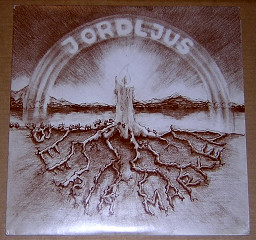
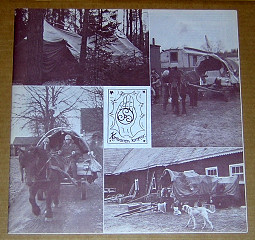
By now most readers will surely have noticed that I'm highly Americanized (musically only, I hasten to add), and it is perhaps about time that I promoted something from my own corner of the universe as well. And where better to start than with this self-released hippie folk sampler, in every way as obvious a feature on this page as the Farm Band up above?
Sweden had a rather solid countercultural scene going well into the early 80s, and many of the more influential communes were probably at their peaks around the late rather than the early 70s (contrary to what most lazy-media would claim). The Farm in Tennessee was a huge influence on places like Skogsnäs and more than a few Swedes went west to check out what was going on in both USA & Canada (it actually went both ways though, draft dodgers from the US came here in substantial numbers & Swedish and Canadian hippies interacted rather frequently it seems - sticking to collector-friendly names, Bob Burchill of PCC(DNE) actually lived in Stockholm for a while in the mid-70s & most shots of Huckle's communal scene were taken by a Swede named Kjell Karlsson, whom I'd like to locate... you out there, Kjell?). And if you wonder what all this has to do with the Jordljus LP, apart from one of its driving musical forces being part-American, well, we're getting there.
The biggest and/or most influential communes in Sweden at the time were probably the aforementioned Skogsnäs and Ljusbacken, both up north (sort of, anyway), and way down south there was Moder Jord & Söner. With its origins in the late 60s, the commune had by the mid-70s evolved into a small farming operation with a high level of self-sustaining, including having their own mill, and in many ways worked as a common center for the movement at large. There were also at least two spin-off groups that opted for a gypsy way of life, travelling throughout the land in horse-drawn covered wagons.
One of the ideas tossed around by the people at Moder Jord and its companions, was that of an 'Earth Fund' - a somewhat loose concept of collecting funds to purchase land for free people where they could build up a functioning alternative to the generally destructive path of society at large. During 1977 and 1978 several meetings were held at various communes and other counterculture enclaves, and during the one in Saltsjöbaden, Stockholm, the Jordljus LP was recorded and sales from the resulting album was one way to gather cash for the Fund.
So, what we have here is full-on authentic hippie commune idealism presented in many shades and colours, by as many different people - remarkably though, and perhaps a sign of the quality of the ideals as well, it holds together just fine as a continuous flow. We're all one, you know? The most famous names are probably Jordbandet, being the house band of Moder Jord, and well-known folk singer Margareta Söderberg, but this has lots more going for it as well.
After a short recitation by Lillemor Lind, Jordbandet gets the musical happening going with a semi-lengthy "Framåt Tillsammans", which is remarkably similar to the sounds found on the 1st Huckle LP - down-to-earth hippie folk with acoustic guitars, violin, lots of hand percussion & very convincing too in all its utopian longing. Singling out top acts on a project like this isn't where it's at, at all, but it has to be said that Jordbandet, with its five tracks, or 23 minutes, is the overall standout on here. They really do have that homemade, communal feel & rugged vibe of the true underground & if you're into this sound & don't mind the Swedish vocals (admittedly, some of the thick Southern accents come across as almost undecipherable even to me... let's all follow the advice of Collector Sr. Paul T & think of the vocals as yet another instrument!) you're in for a bit of a treat & one that can be had for 25 bucks at that.
"Fula Fiskar" is perhaps Jordbandet's main claim to fame, as a live performance of this aired on national TV at least a couple of times, both back in '78 & more recently some ten years ago - see below for a link to this - but it's also another awesome, slightly Huckle-esque tune, its simple lyrics dealing with environmental issues in a sorta funny - but ultimately sad - way.
For the heads though, the monster on Jordljus is the last & longest of Jordbandet's tracks, "Vi Ska Befria Allas Land", a slowly evolving folk psych number with recorder, vocal harmonies, some sort of harp & booming percussion fills. Parts of it may slightly recall a tamboura-less Rhythm & Bliss - which is considered very high praise around here! Fantastic track.
Apart from Jordbandet, other hit-picks would be Mullvadarna's "Christiania/Mullvadsmix", sounding a bit like Fickteatern with a touch of Gunder Hägg, and Bank I Väggen's Arbete & Fritid-influenced "Springlek" (written by A&B-cohort Anders Rosén), but as I said above the whole record plays through very smoothly, despite the large numbers of participants - this is the real nitty-gritty sound of the alternative Swedish scene & while it doesn't sound one bit like Träd, Gräs & Stenar, it's a latter-day piece of the same puzzle.
I won't claim that Jordljus gives me as much musical satisfaction as something like the Happy & Artie LP above, but it's a solid spin, a fascinating document & an important statement, carrying as much weight today as it did back then. There's a lot to be said about the Swedish back to the land-movement of then & now - and I'm working on it - but for a first glimpse, this will serve you well. The LP comes with a neat 8-page booklet in Swedish, but there are enough photos & drawings to keep non-Swedes occupied for a good bit too. And remember: fula fiskar finns bara på land. (2013)
(Note: link to "Fulas Fiskar" clip on Youtube:
http://www.youtube.com/watch?v=vqj9k0T5BS8
Jordbandet are actually still alive & well - look for current clips on the tube as well.)
SUB ZERO BAND - Sub Zero Band (no label SZ 1172) USA 1972
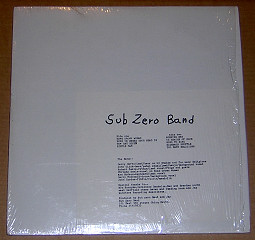
Heading back to California after the Swedish sidetrip above, we come upon this long-standing collectors title which somehow escaped most of my attention for years - it was one of those names that I'd seen in record lists since way back, but for one reason or the other I never bothered looking into it any further. Then finally, in 2008 or 2009 I did get to hear it - and it knocked me out completely! I immediately emailed a dealer-friend whom I knew had been in touch with the band & asked if he had a spare copy available, but had no luck & I soon forgot about the whole thing. Then in late 2012 the Napa maestro got back to me, asking if the need was still there - he had come across a really nice copy, including the non-LP 45, and soon after Sub Zero Band moved to Sub Zero Land.
When reading about this in lists or books, one rarely finds much enthusiasm - seemingly most people describe it in terms of 'ok', 'pretty good' or similarly lukewarm blandisms, but I've yet to see anyone shouting "killer!" the way I feel inclined to do. That said, most psych collectors or dealers save the 'killer' shout for heavy records, either musically so or 'heavy' in the sense of something other, and Sub Zero Band are neither; instead they deliver weed-fuelled organic hippie rock with mixed vocals & instrumental noodling here & there. Lyrics show a good sense of rural homestead humour (try "Home Grown Woman") & occasionally the band goes deep into the jamming zones of their time & place. Many have drawn comparisons to Shiva's Headband & I certainly won't argue with that, though overall this is far less rootsy & musically refined - the garage version of the Headband, perhaps.
Anyway, this is one of those albums that just put me in a really great, laidback mood whenever I play it; as soon as the aforementioned "Home Grown Woman" starts to shake the walls I get a ridiculous smile on my face & even if other parts of the record are darker, I still stay in the Good Time Zone for as long as it's playing - closing my eyes, I have no trouble feeling & seeing myself dancing among other heads out on a field somewhere in the Californian countryside (or perhaps in Oregon, where their 2nd homebase was), with the Sub Zero Band shooting for the sky on stage. Tracks like "Home Is Where Your Head Is", "Simple Man" and especially "Too Many Religions" sound like potential stage bliss trips, with the snakey violin & lead guitar taking you places... this is barn rock of the highest degree & I bet they would've made a killer double bill with early Goose Creek Symphony.
1000 copies of the LP were pressed but I have it from a good source that several of those - we're talking a couple of boxes here! - accidentally were built into a wall in band leader Bob Seals' house by some unfortunate building contractor... I kinda wish that some of the records I've done had met with that same fate instead of being out there showcasing my shortcomings... but that something as good as this being out of reach, in its most literal sense, is utterly frustrating... come on Bob - tear down the walls! (2013)
(Note: the cover version shown in one of the Pokora books is fake!)
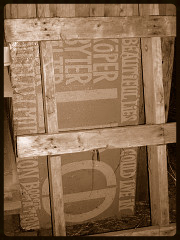
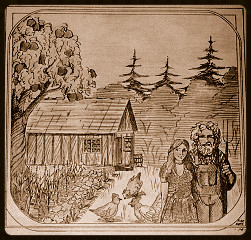
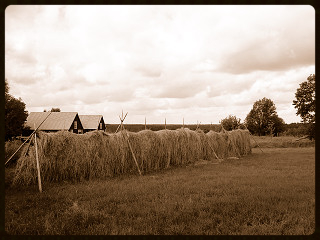
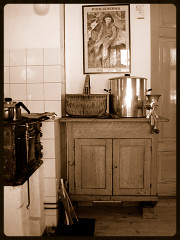
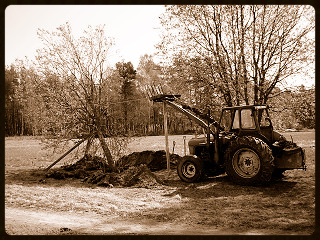
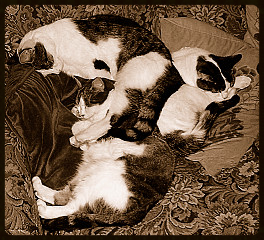
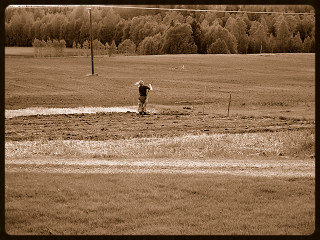
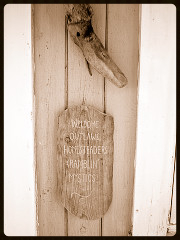
FROLK HAVEN - At The Apex Of High (LRS-RT-6032) USA 1972
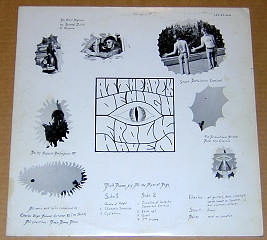
A couple of disclaimers first: (1) I won't even mention the pigs (I only like 'em when they have tails) & (2) I'm still bummed that I narrowly missed a mint copy of A Letter Home for $12 in 2004 or so.
In the Kingdom review above I said that my collection is pretty thin on heavy stuff these days & the same goes for much of the experimental/progressive/avant garde sounds that never exactly cluttered the shelves to begin with, but they've been far more prominent in numbers than they are now. In a somewhat typical manner, one of my faves in this field is not all that highly regarded elsewhere, but to me the Frolk Haven LP has always been a wild & intensely enjoyable night time spin that conjures up images of a heady, acidical small-scale scene no bigger than the band members themselves (and there were only two of them) - there's something very introverted about these grooves, in an almost teens-in-the-basement way. I imagine this is part of the reason why I like it; I've never been much for the punk era, but I dig a bit of punk attitude every now & then & this is far more punk than highbrow. Not bad for something often labelled avant garde.
I originally learned of this during the first half of the 90s, when it was commonly described as being Ya Ho Wa-like, but as soon as I put it on for the first time any such notion went out the window via the room-clearing unholy mess of strings, reeds & frantic drums that is the first few revolutions of "Oracle Of Delphi". Before long though, the track slows down into a moody nocturnal ride through sub-sub-Phil Zone bass rumblings & same-era galactical full band Dead noodliness, the instrumental landscape as tripped-out as the heavily treated vocals.
"Idiomatic Interlude" is less out-there, but still loose n' jammy with a bit of clarinet adding a slight, brief RTV MU-like feel & yet again there's a whiff of the Dead here & there. This whiff is still around for the intro of "Cyclation", but only briefly as a heavy wah-wah lead takes charge on top of drums that are very un-Kreutzmann, not to mention the semi-spoken vocals that seem to come out of the end of a sewer pipe - not very Jerry-sounding. Whenever I've taped a track off "At The Apex Of High", this has been my go-to cut, so I guess to me it's kind of a key element of the album - but it could also be that it rocks a bit more, is pretty short & thus a more accessible thing to put on a sampler. It is however not even remotely anything like a 'straight' song... more like two young heads freakin' & peakin' & bashin' away in the afterhours.
Seeing a track named "Zonation Of Galactic Cosmoidal Entities" would be kinda scary if the LP in quest was a major label mid-70s release, but in the case of a lo-fi local Berkeley pressing it's hip as can be. Set & setting, remember? The Zonation also goes well with what band leader His Royal Highness the Grand Zilch Of Ozone is up to today - maybe this track with its spacey effects & brief Indian-influenced vocals was what lead him to the Convergence Syndrome Triad? Regardless, it sure takes me places. By comparison, both title & music of "Back Up!" come across as something else altogether - imagine Miasma-era Bevis Frond with a head full of Beefheart but still being young enough to sleep well into the afternoon, getting up at five & going straight to the rehearsal & mental space, where he'd "dance to the rythm of the paisely skies" [sic x 2]. "Quest" is equally coherent, relatively speaking, and almost kinda catchy here & there, with a mention of 'soft machine' that's fitting as a nod towards both Burroughs & the jolly Canterbury lads.
Despite being rather limited in scope (at least as far as the number of instruments go), this is a record that has such a width to it that when in the mood I can listen to it almost endlessly; its organic, free nature operates together with my head in a genuinely psychedelic manner. I may not be at the apex of high, but I can certainly be found strolling the midnight sky at a leisurely pace just by opening up my ears fully to what's happening here. I'm also fond of the crude cover aesthetics, there's something very acid-goofy about the whole thing that goes well with even the spookiest musical parts, as if the duo spent half their time giggling with Mr. Natural while smokin' pot & the other half reading out parts of the Tibetan book of the Dead aloud while on the chemical dusk-to-dawn trail. To me that's a pretty unique space for a 70s record & very much in line with the mentality of the original SF head cowboys (which partly explains my repeated mentioning of the Dead here), even if the Frolk Haven guys come across a whole lot more as youthful stoners than any of the heavy bands ever did; the amateur lettering on the front cover echoes Wes Wilson in the same young-cousin-from-the-country way, sort of. Don't read this as if I'm saying it's a west coast-sounding LP though, because there's minimal ballroom action on here.
Final bonus points handed out for having an 1"x1" back cover paste-on, saying "Recorded in Berkley" [sic again].
"What time is it here can you tell me
I think I'll be crawling on home
If I get there
I know the dawn will bring me back down
If I get sleep in tonight
This may be the last time
I'll ever get the dawn light"
Yeah, more of that [sic] thing, but hey, they're Frolk Haven & they can get away with most anything - spelling & grammar don't matter much in the paisely skies. (2015)
